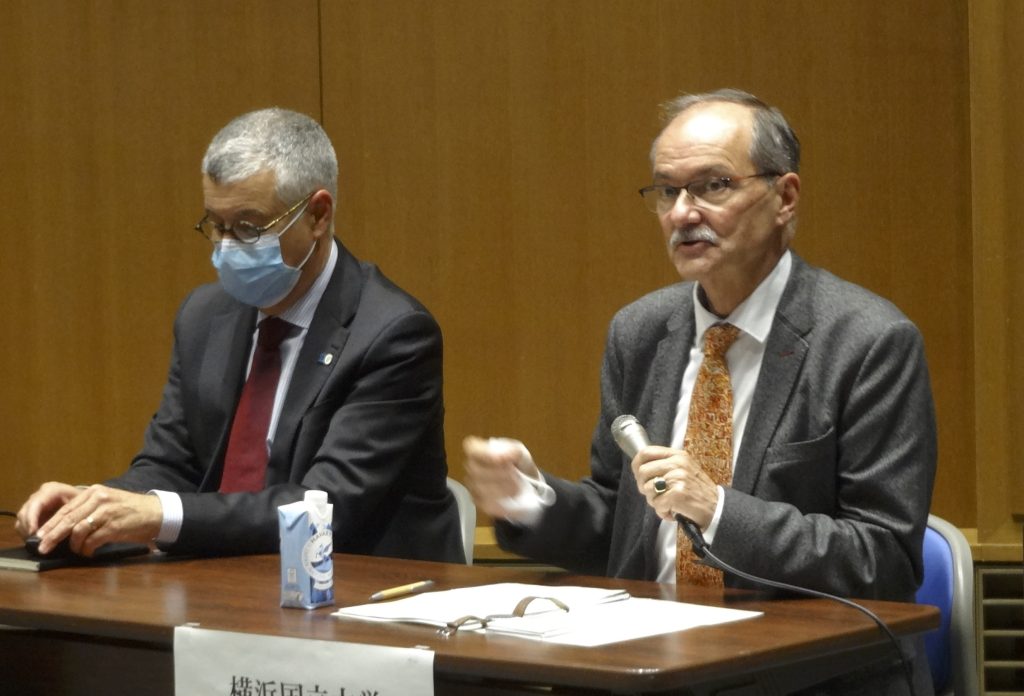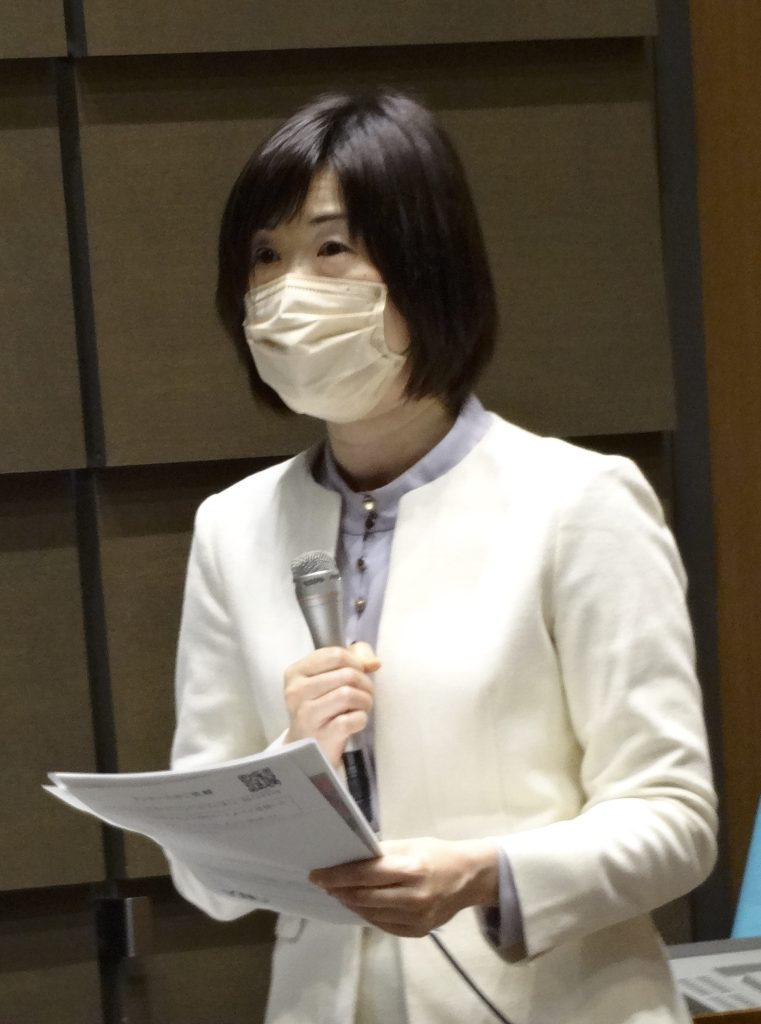Yokohama National University Launching Conference of UNESCO Chair on “Education in Biosphere Reserves for Sustainable Societies” was held on Nov 21, 2022 (10:00-16:30) at Yokohama Jyoho-Bunka (Information-Culture) Center 6F (Minatomirai Line: Nihon Odori Station).
Video message by Ms. Noëline Rondry Rakotoarisoa (UNESCO UNITWIN)
・

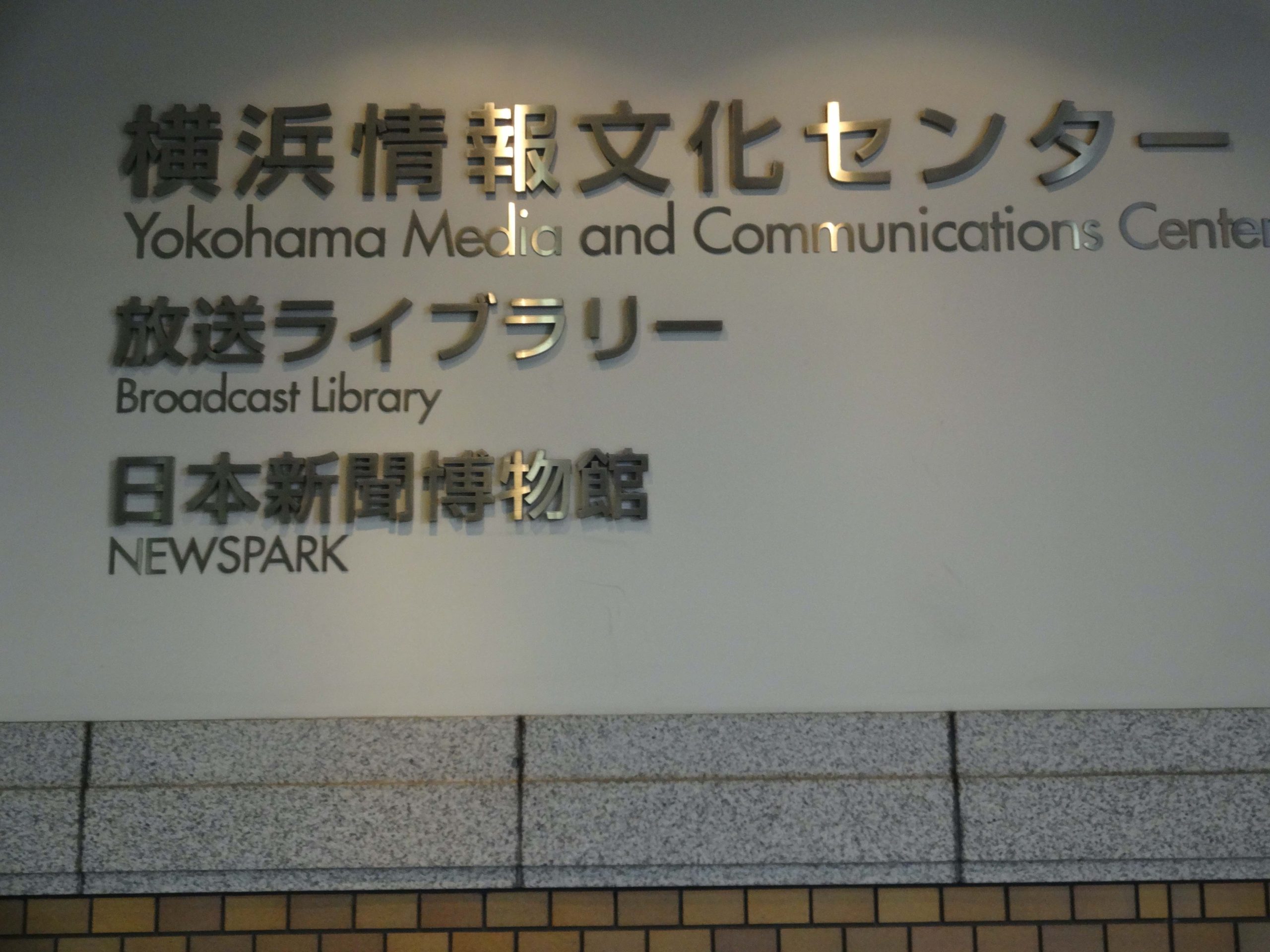
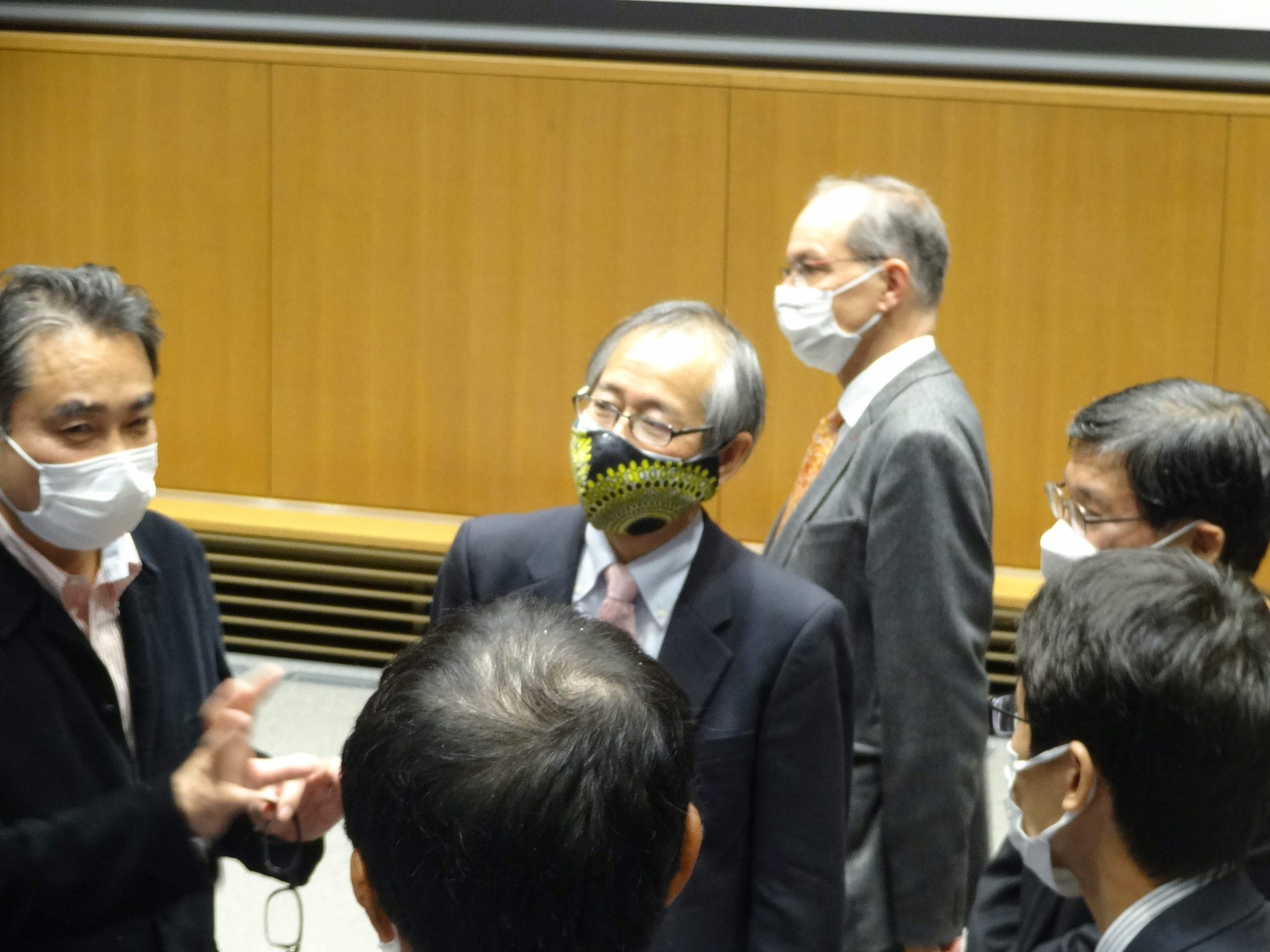
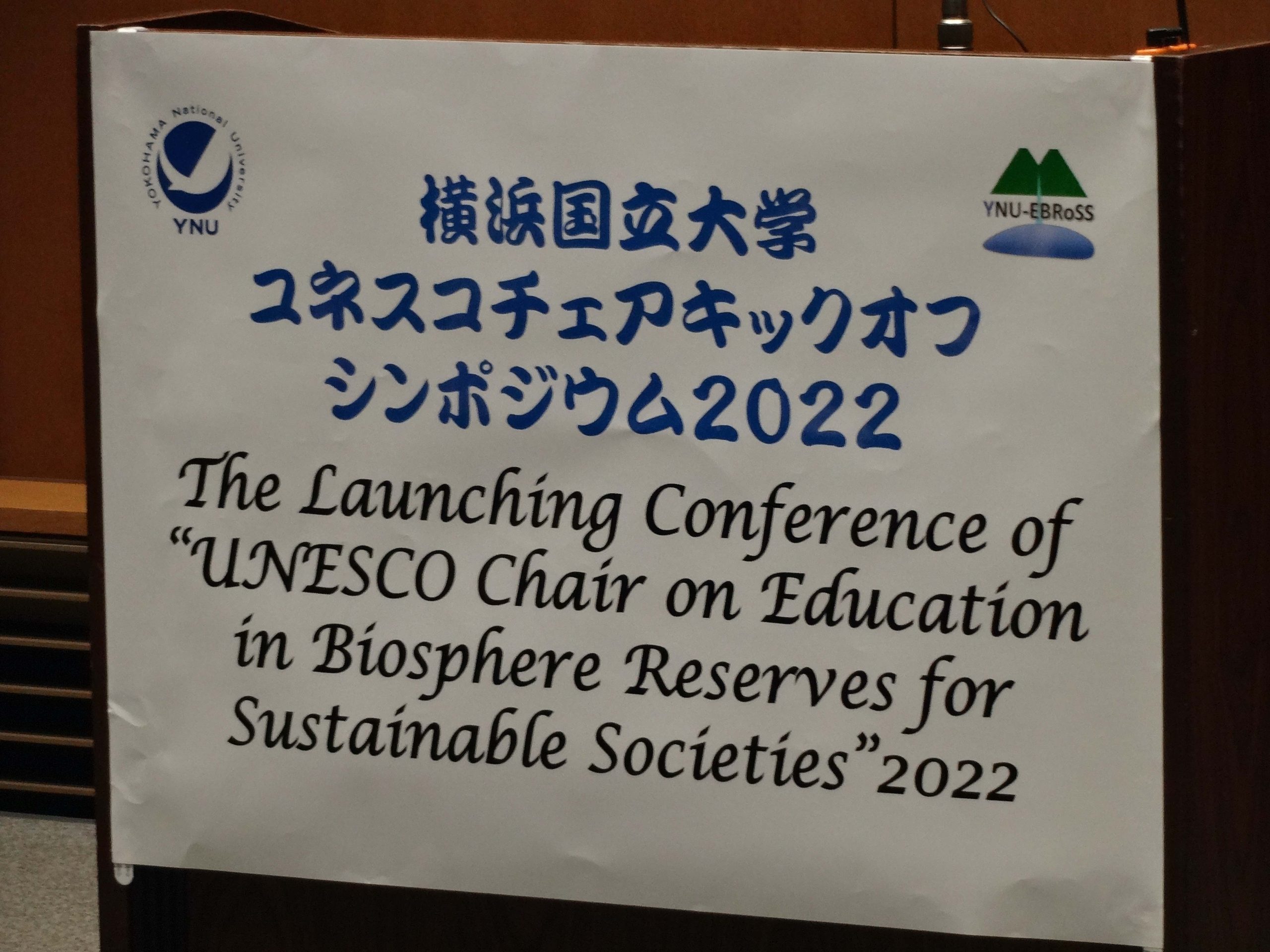
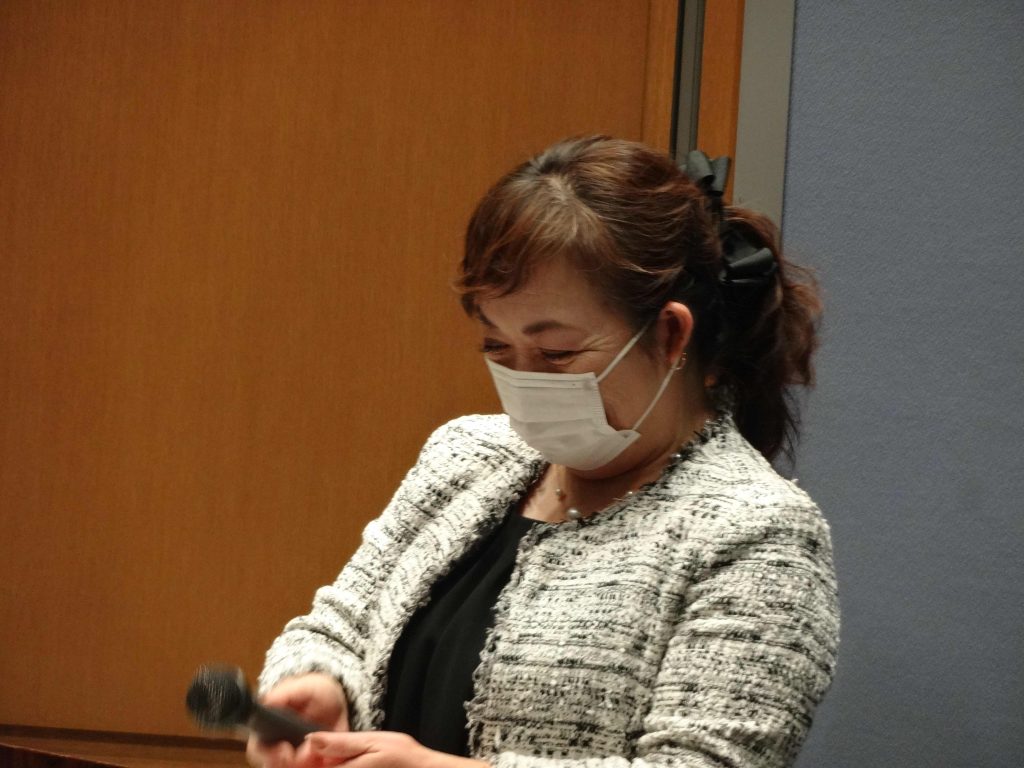
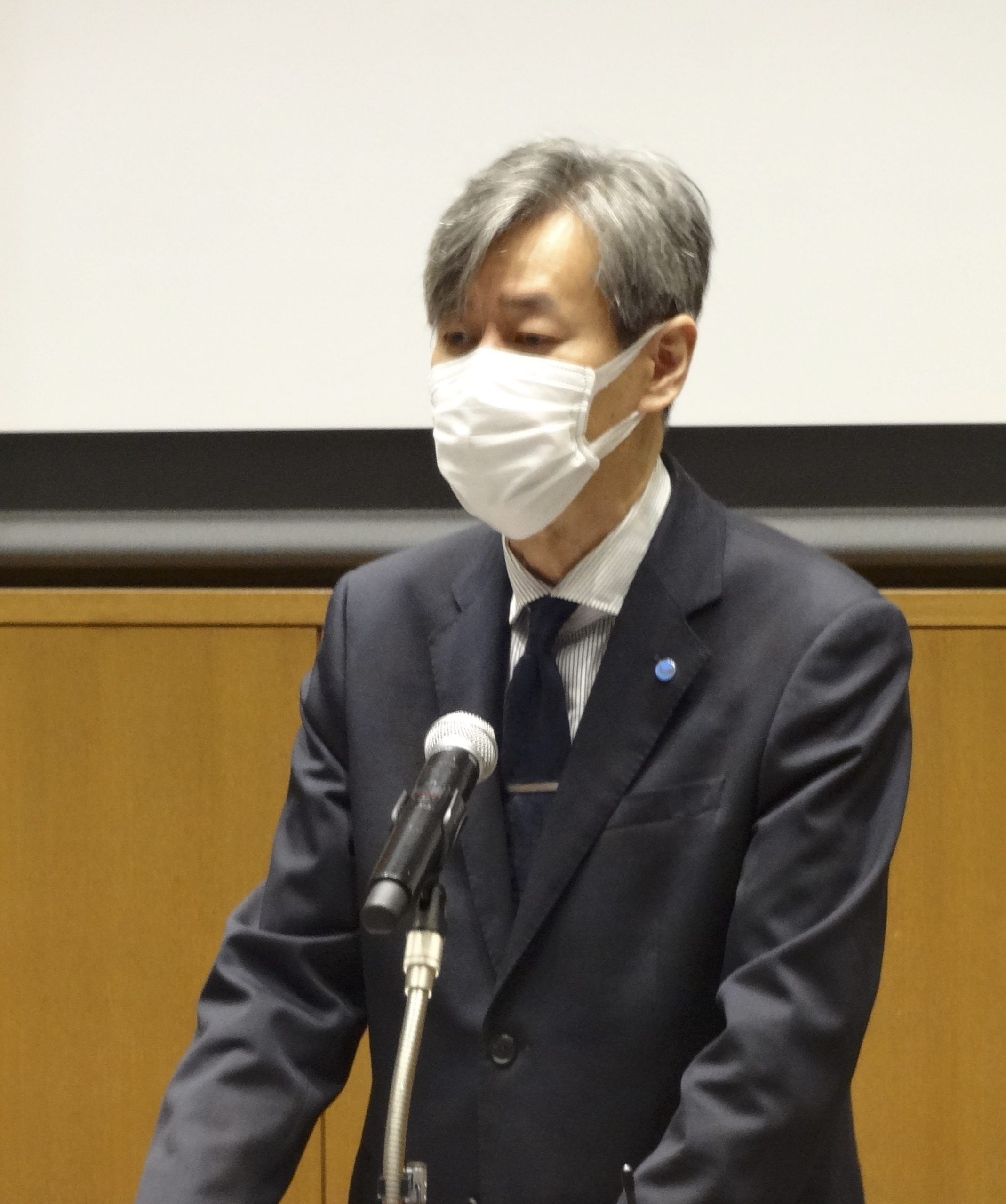
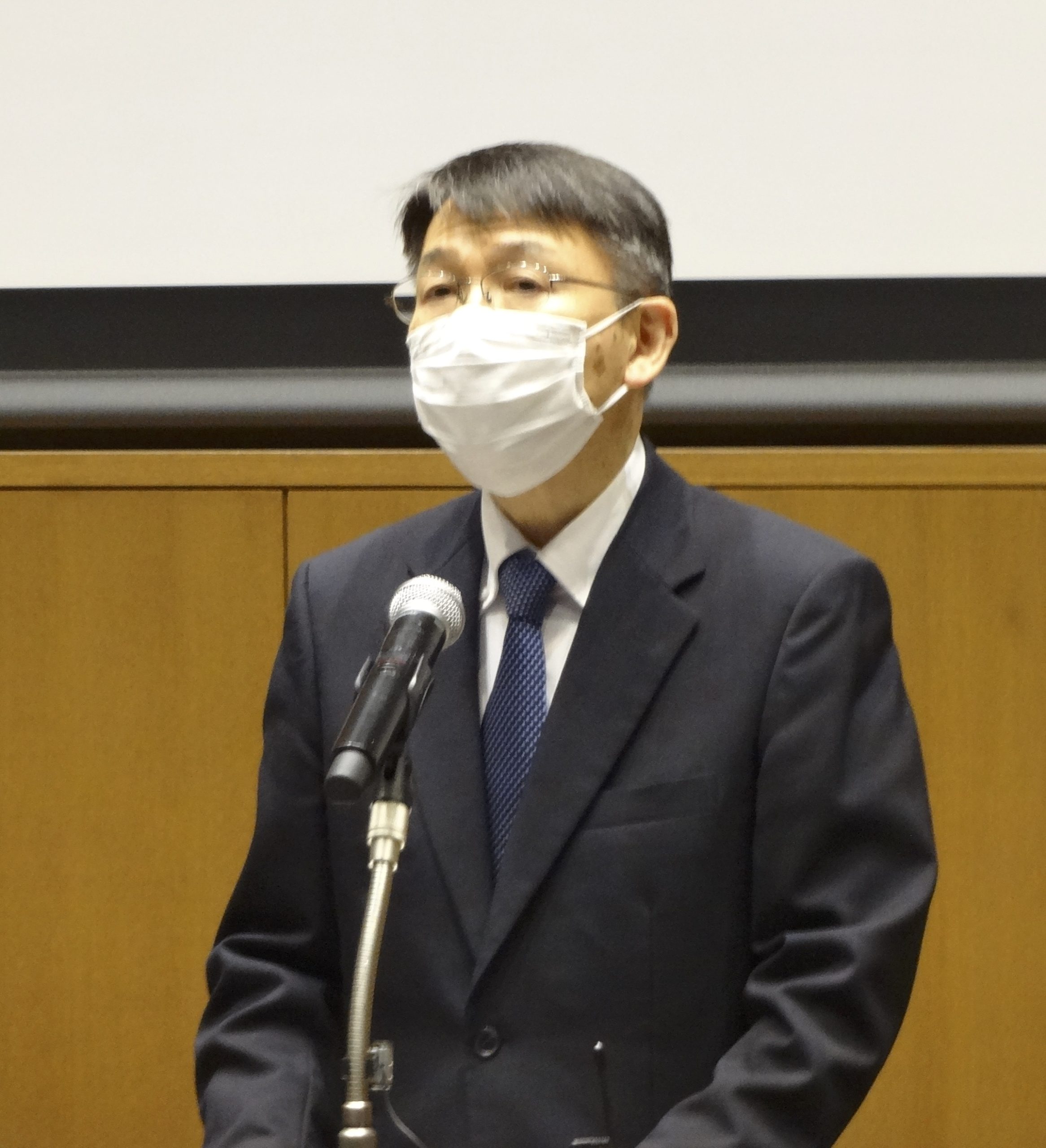
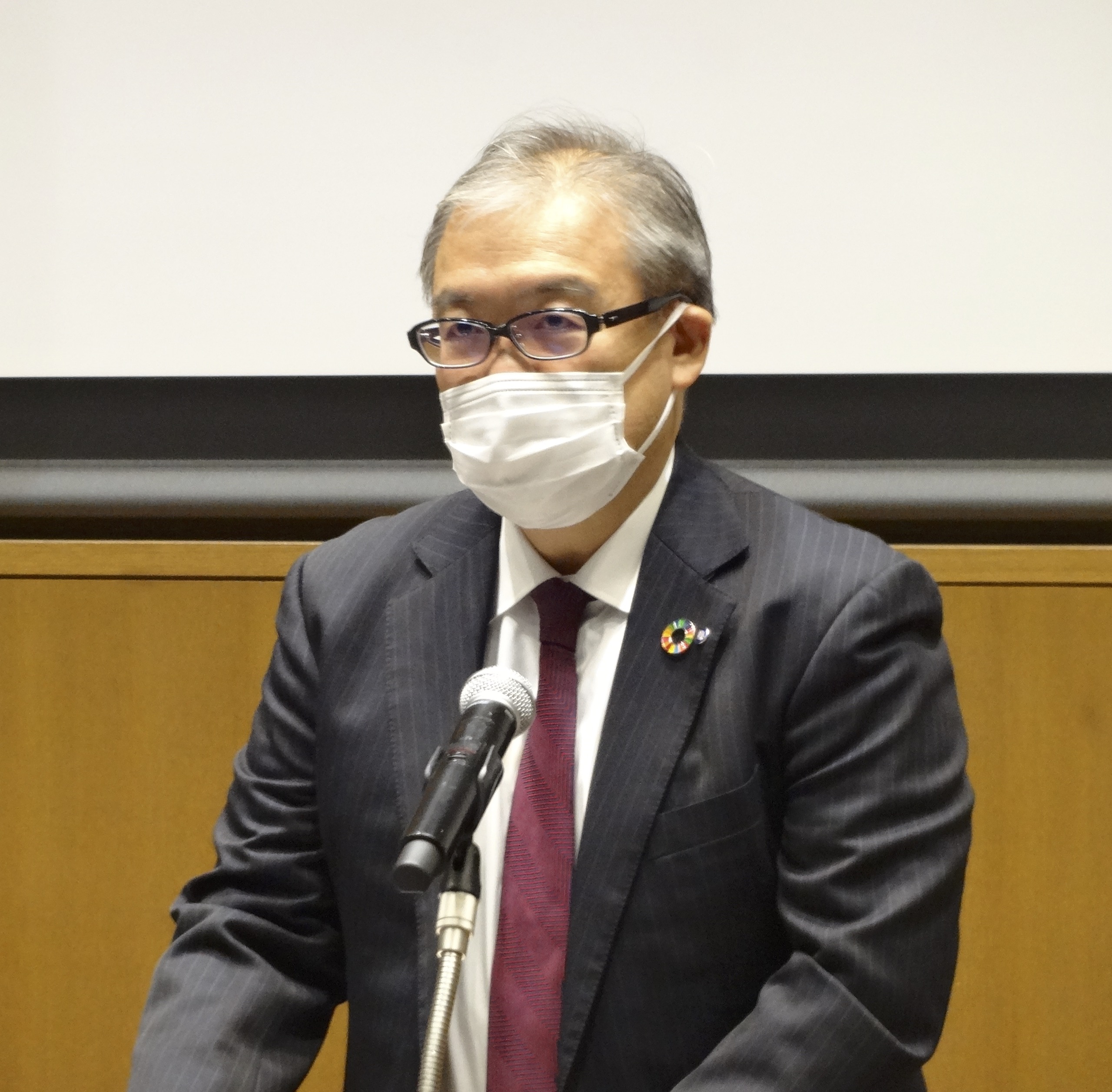
Following the opening remarks by President Izuru Umehara, we received congratulatory addresses from the guests, Mr. Takashi Kato (International Negotiation Analyst to the Director-General for International Affairs, Ministry of Education, Culture, Sports, Science and Technology / Deputy Secretary-General of the Japanese National Commission for UNESCO), and Mr. Minoru Shimada (Executive Director for SDGs Future City Promotion, City of Yokohama) reading on behalf of Mayor of Yokohama, Mr. Yamanaka.
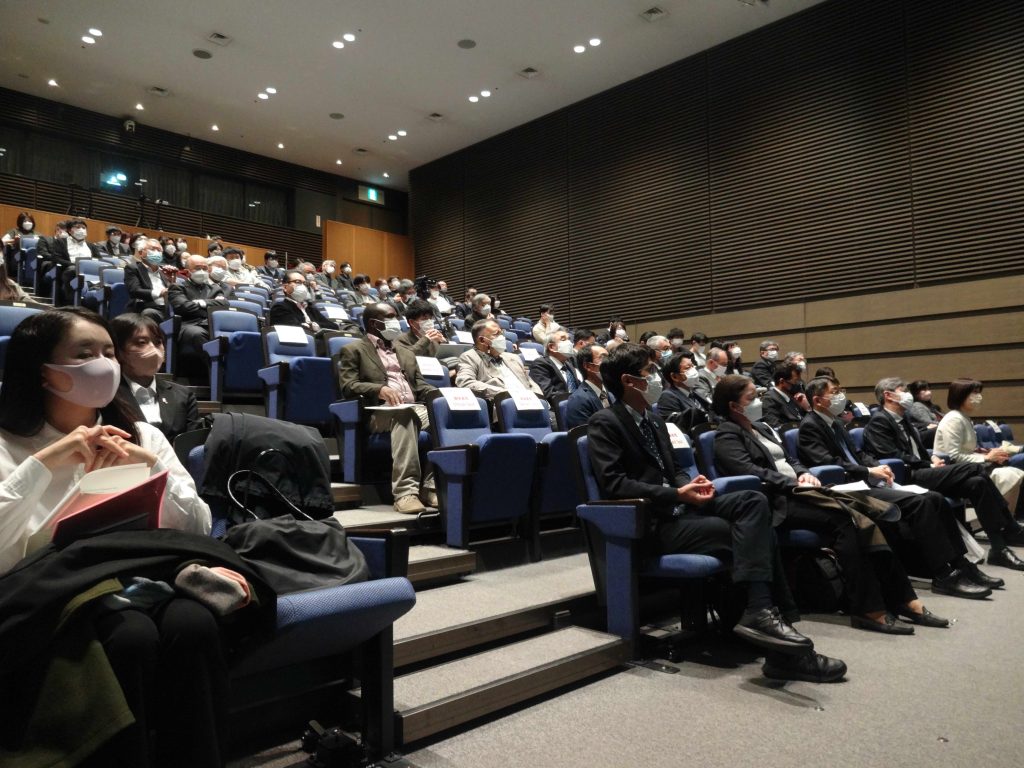
Due to the COVID-19, seats were prepared at intervals, but a large number of participants filled the venue.
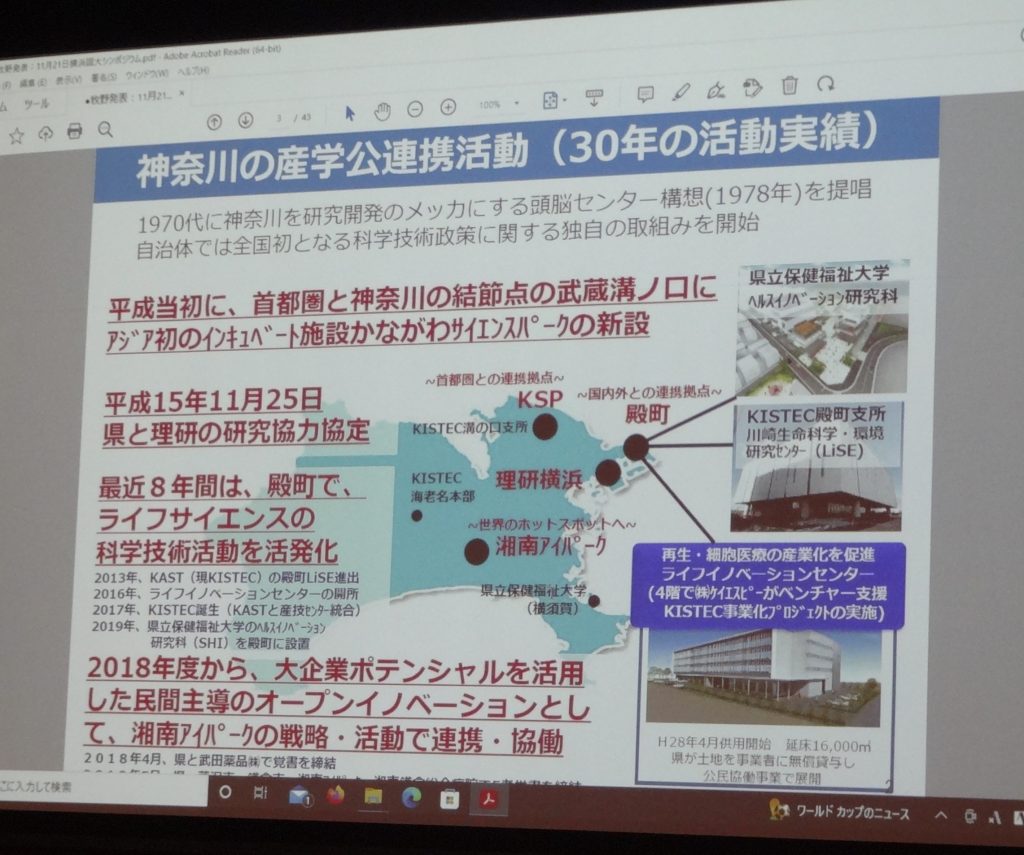
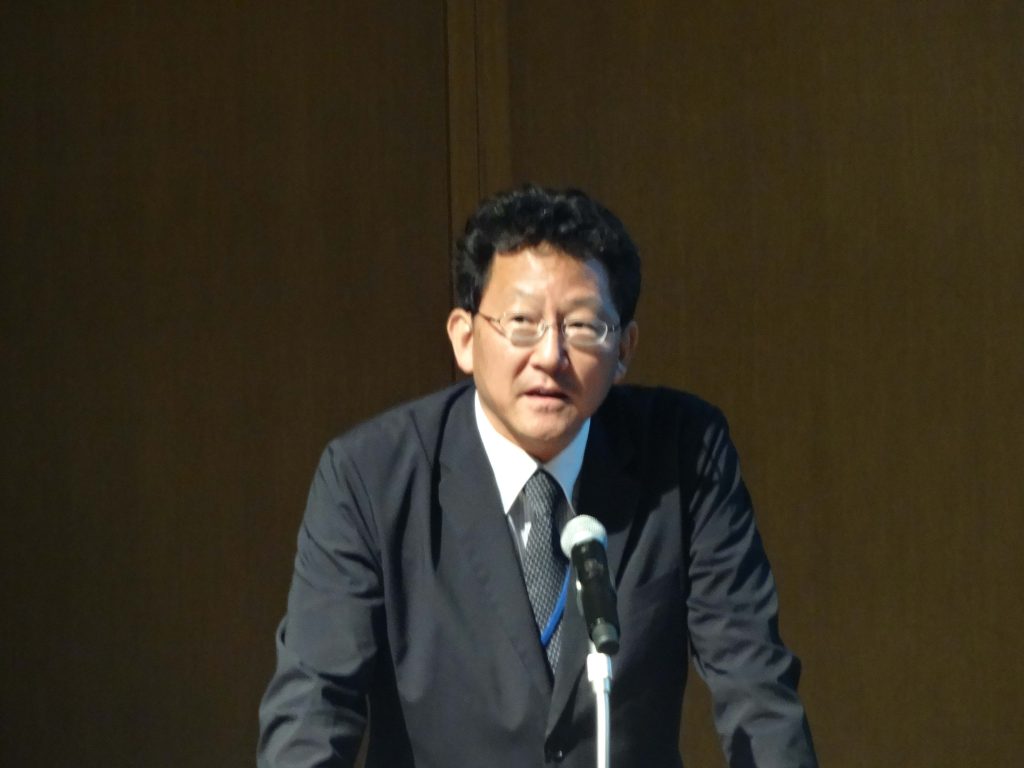
Mr. Yoshiyuki Makino (Director, Science and Technology Innovation Division, Life and Future Strategy Headquarters, Kanagawa Prefectural Policy Bureau) gave the first lecture titled “Kanagawa Prefecture’s Science and Technology Innovation Activities – 30 Years of Beliefs in 15 Minutes”. The achievements of industry-university-government collaboration activities in Kanagawa Prefecture over the years were introduced.
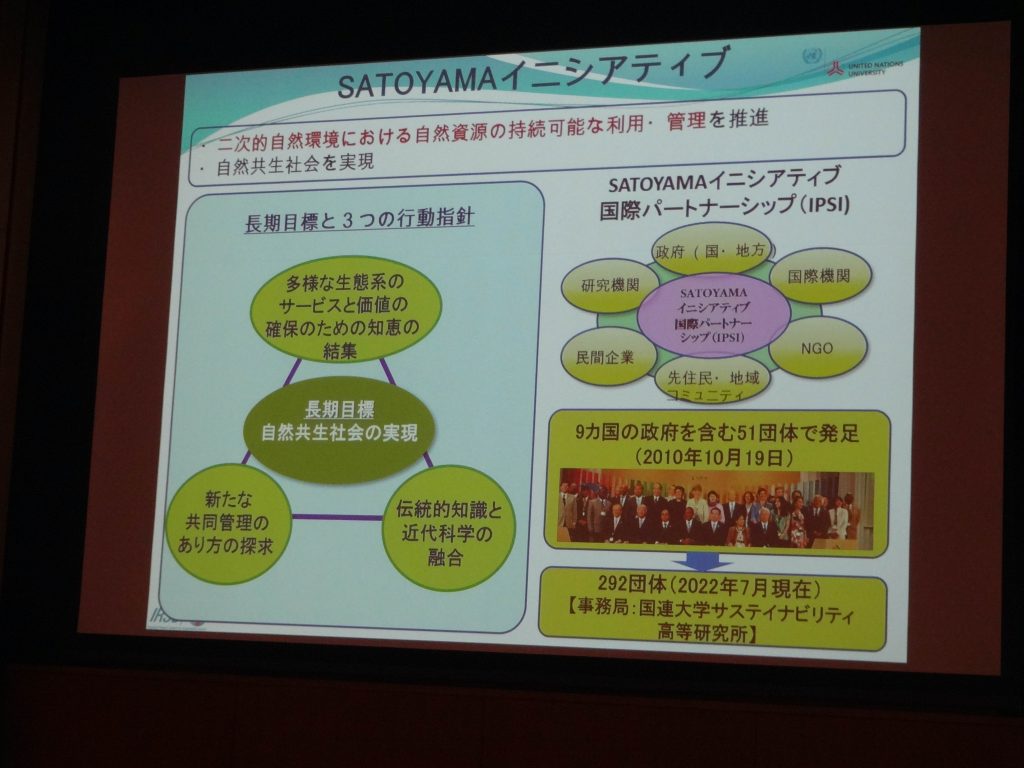
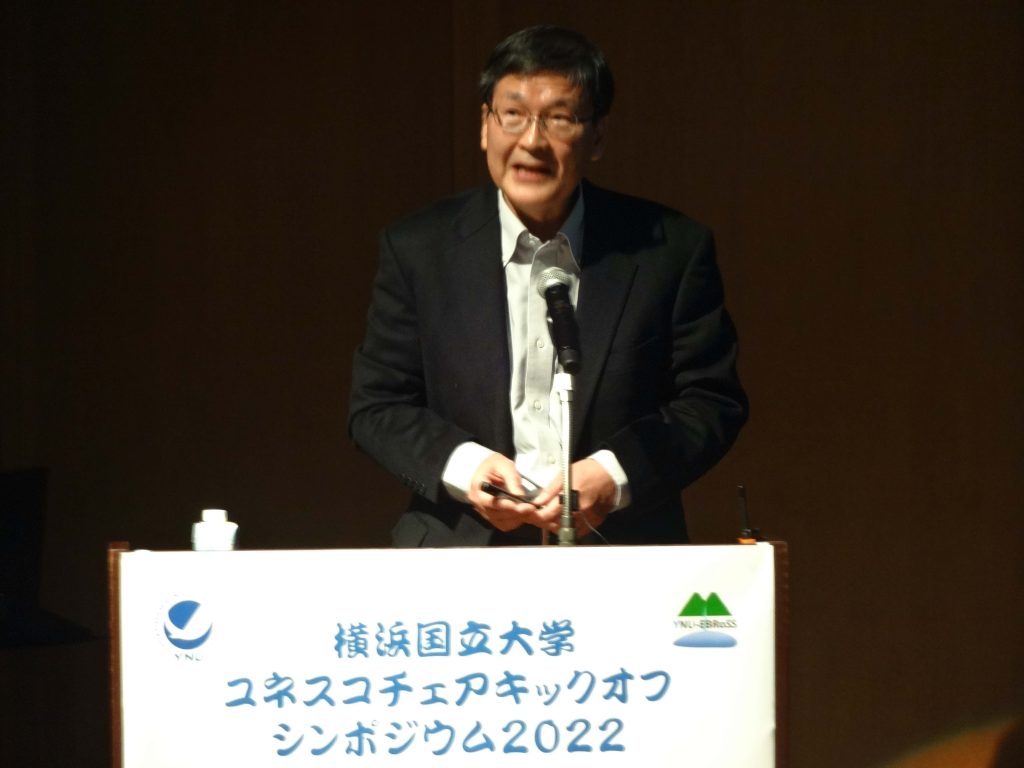
Mr. Tsunao Watanabe (Senior Researcher, Japan Wildlife Research Center, Chairman of Japanese National Committee for MAB, Chairman of Japan Committee for IUCN) gave a lecture titled “Trends in Natural Environment Policy and Expectations for UNESCO Ecoparks”. Satoyama Initiative (upper left photo), and the Aichi Biodiversity Targets adopted at COP10, followed by the adoption of the post-2020 biodiversity framework at COP15, a global biodiversity target for 2030 were presented in an easy-to-understand historical order.
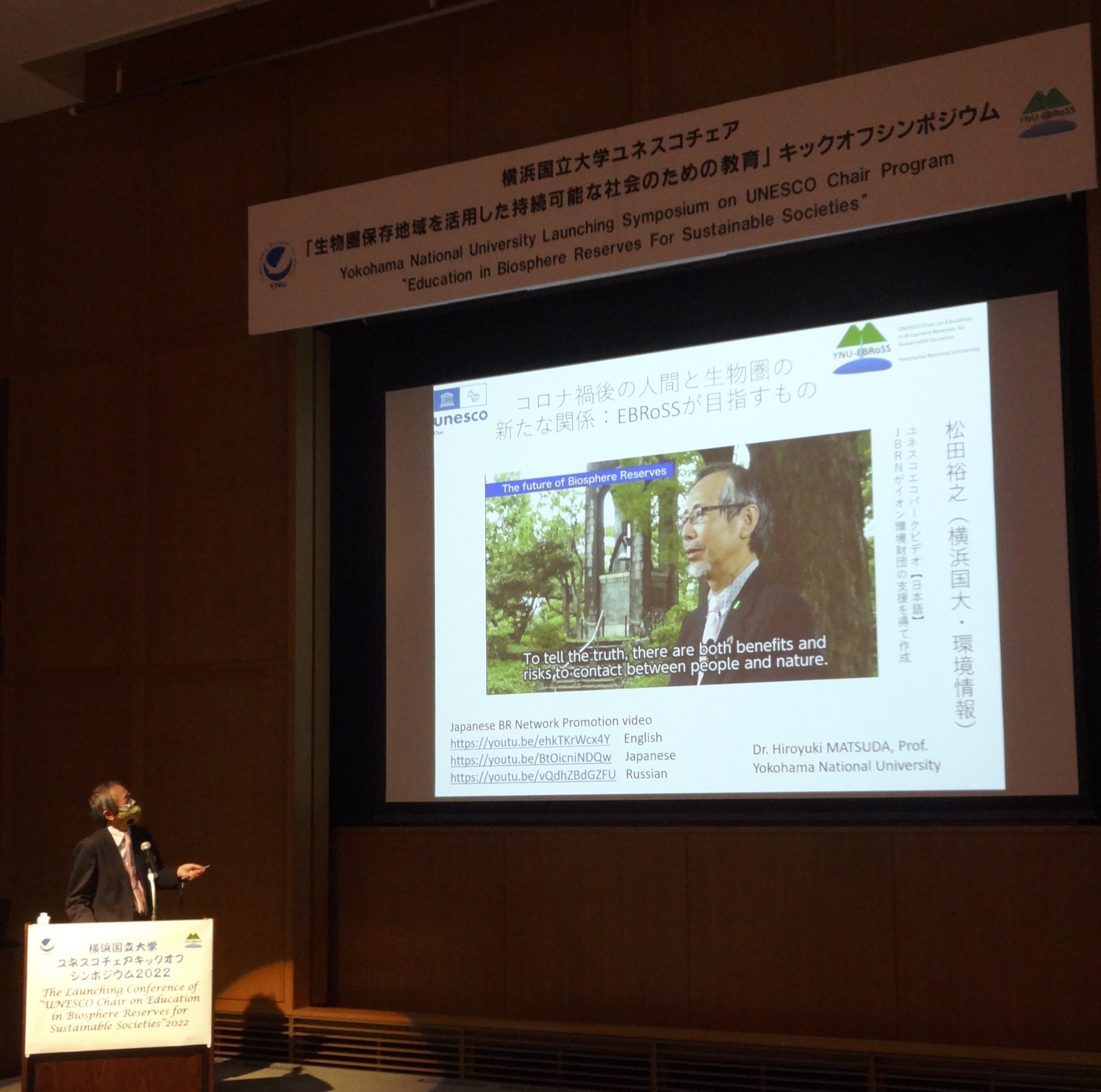
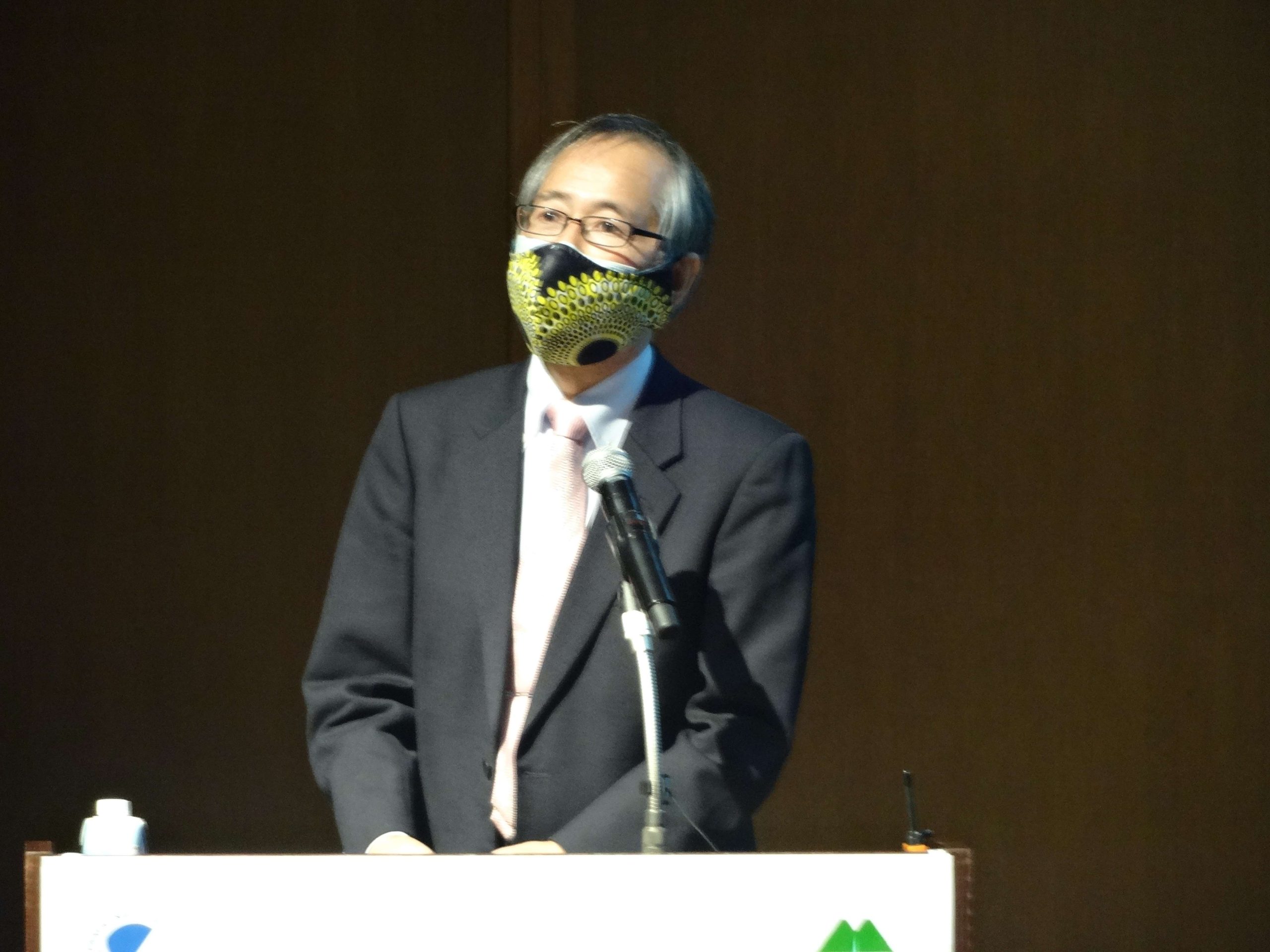
Next, Prof. Hiroyuki Matsuda (Graduate School of Environment and Information Sciences, Chair Holder) gave a lecture titled “New Relationships between Humans and the Biosphere after the Covid-19 Pandemic,” in which he spoke about plans for future activities.
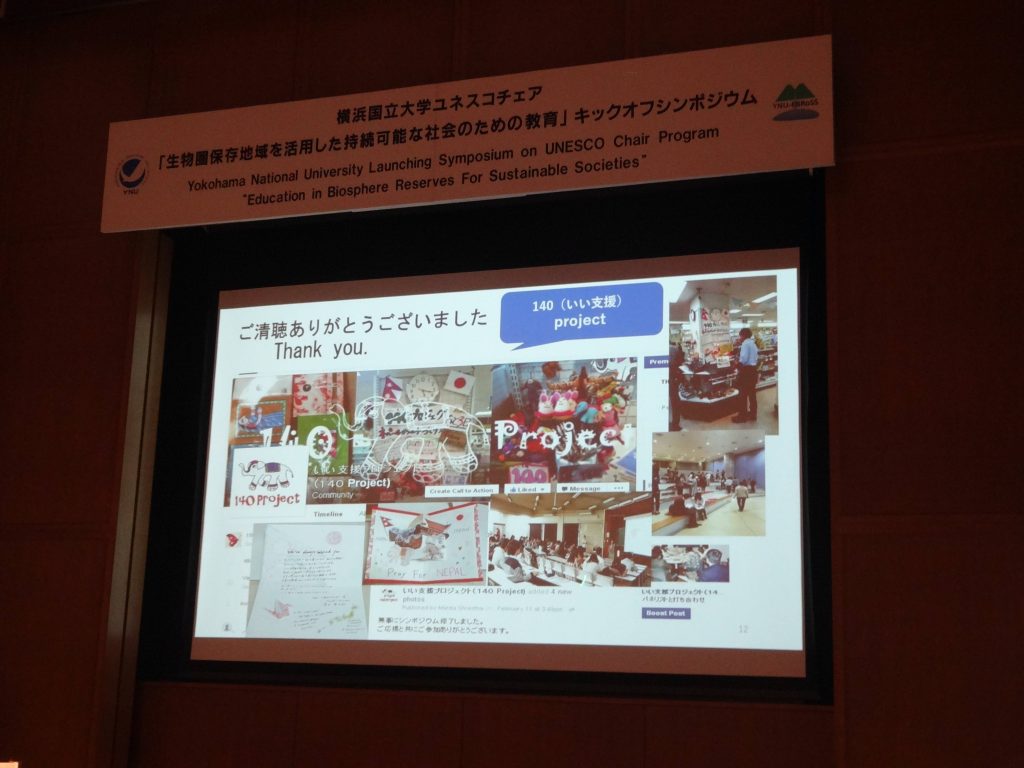
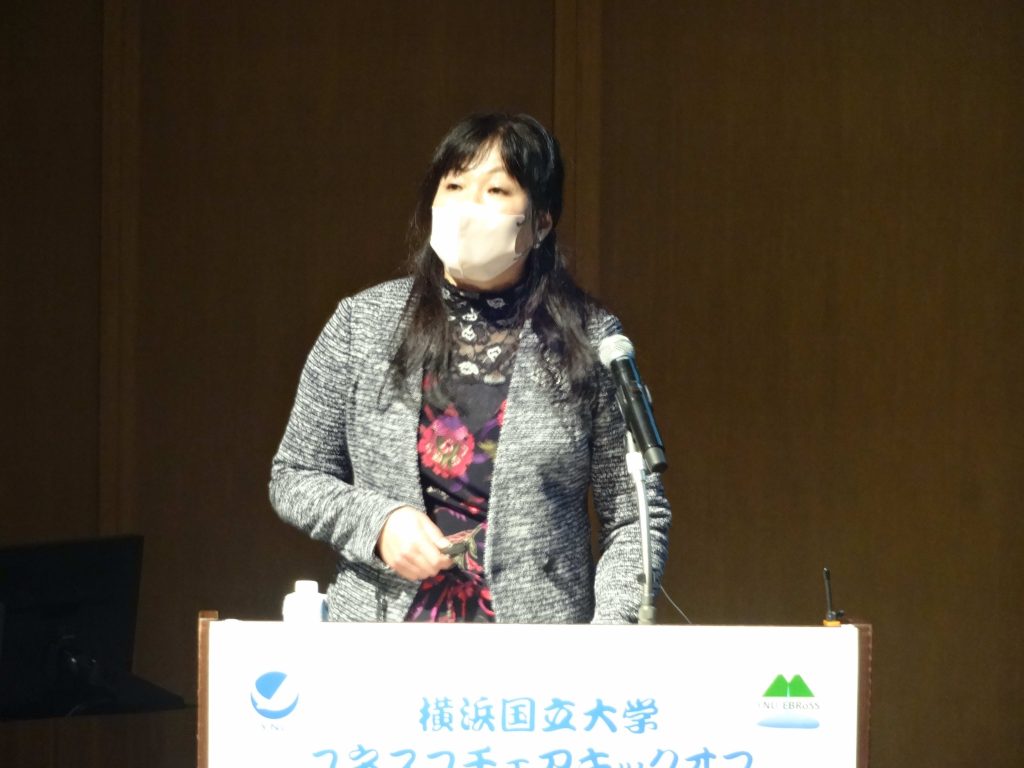
Prof. Reiko Matsubaguchi (Faculty of Education) gave a lecture titled “Establishment of ESD x YNU EBRoss,” which introduced the efforts of the Faculty of Education regarding ESD. She also explained that since Kamakura Elementary and Junior High School attached to Yokohama National University has been selected as a UNESCO ASPnet school, there are expectations for the university’s UNESCO Chair.
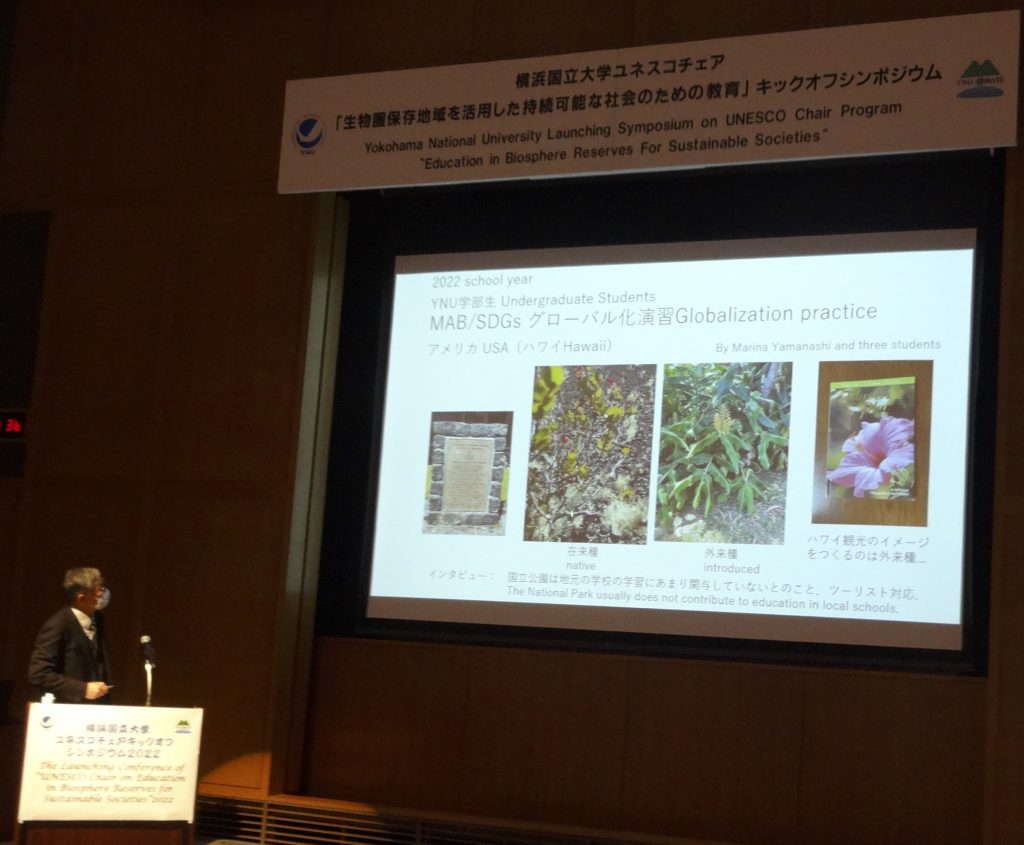
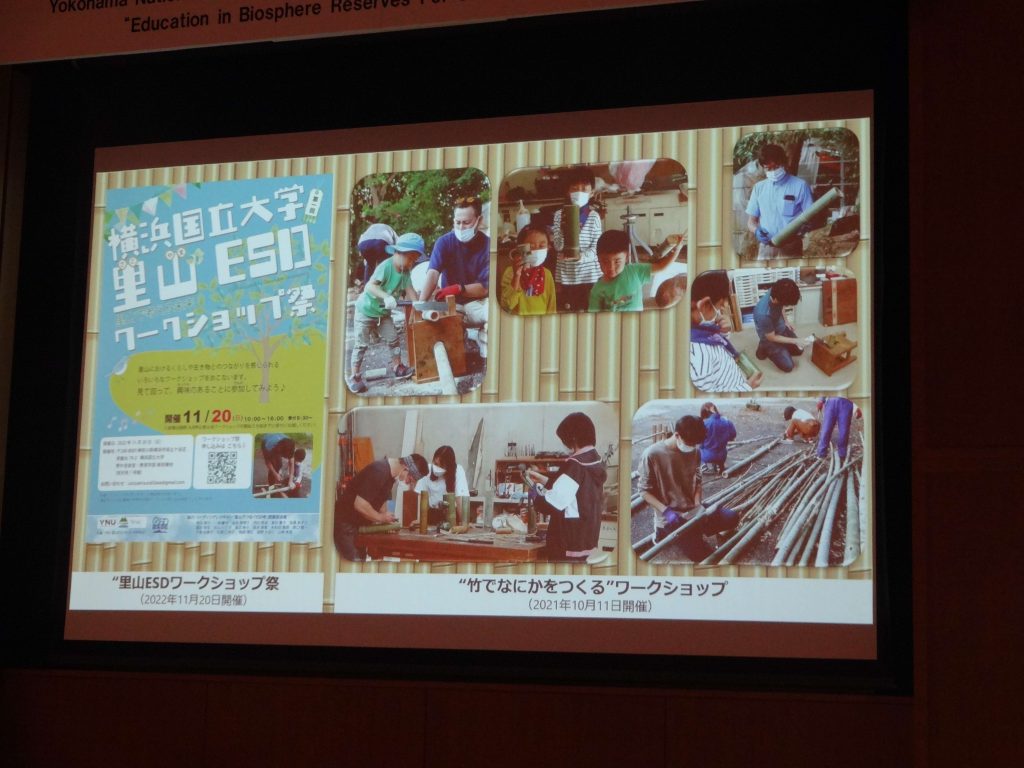
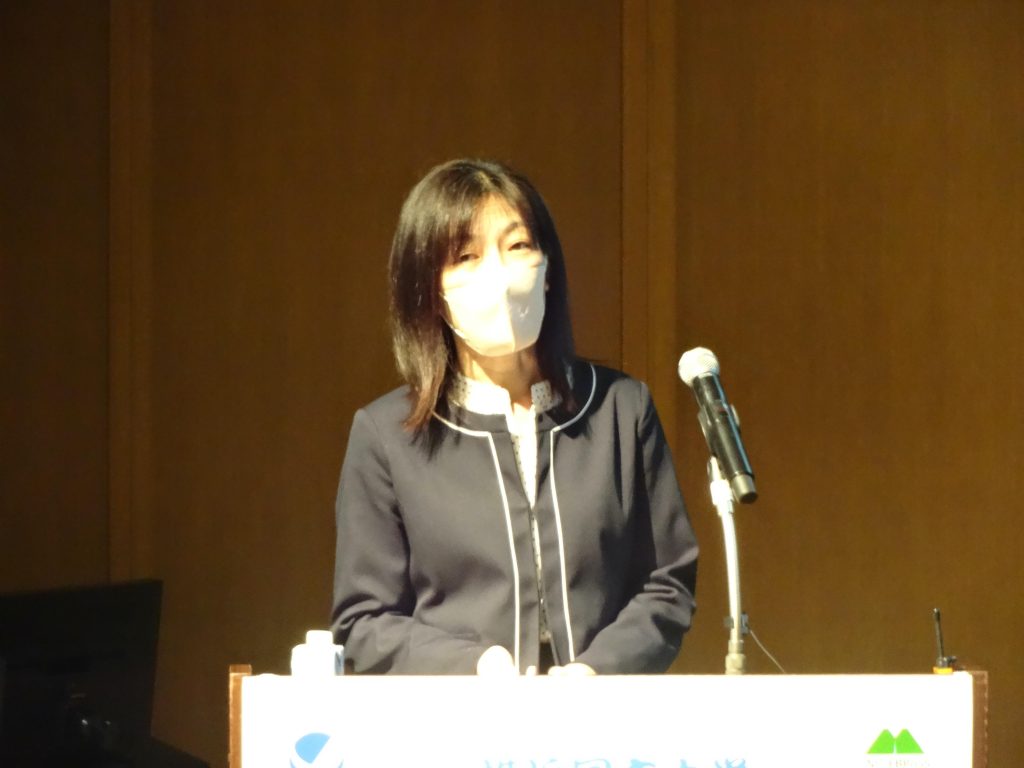
Assoc Prof. Kaoruko Kurata (Faculty of Education) gave a lecture titled “Biocultural Diversity and Environmentally Symbiotic Society – ESD Utilizing Satoyama -“. “Satoyama ESD Workshop Festival” was held for hands-on learning for children; at the same time, it became a place for parents to learn, and it was connected to student education.
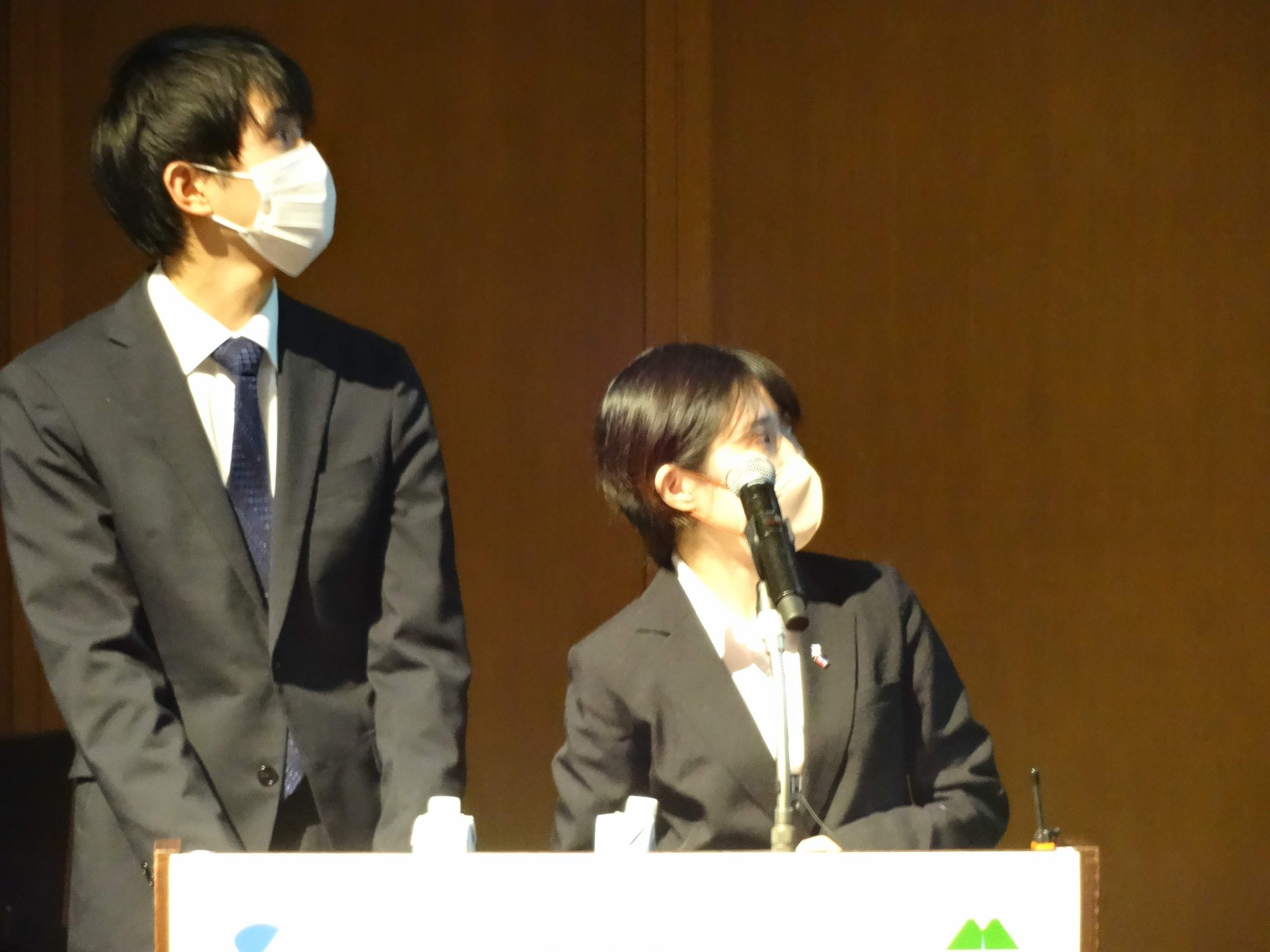
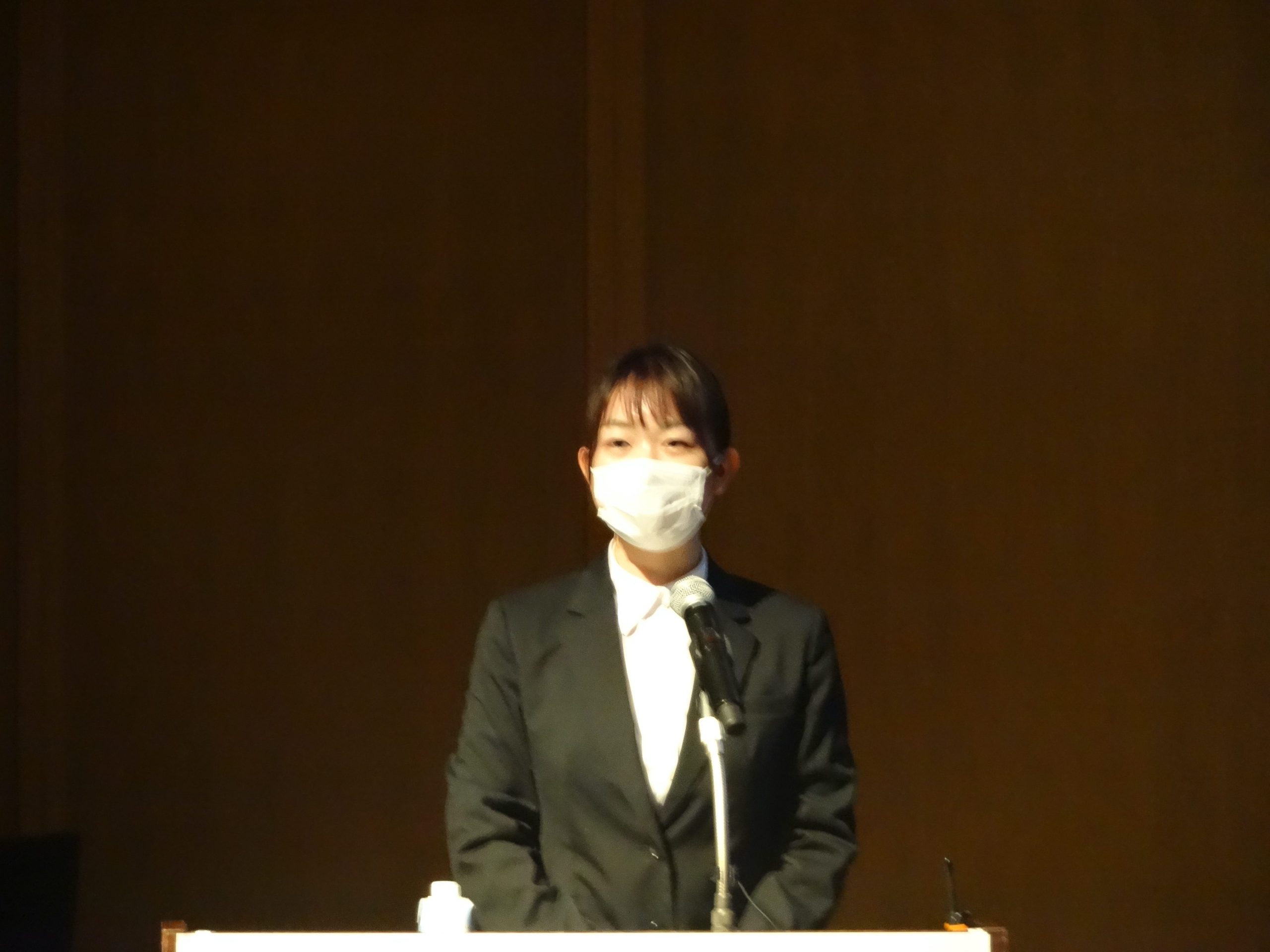
Mr. Masaru Eto and Ms. Tsukushi Sugie (students of Fujikake Lab.) gave a lecture on field research in Paraguay entitled “The World’s Largest Hydroelectric Power Plant and Nature and Ethnic Culture,” and Ms. Ryoka Yoshida (student of Kurata Lab.) gave a lecture on “Aiming for conservation and sustainable use of biodiversity – A Case Study of Kobushi BR’s Transition Area.”
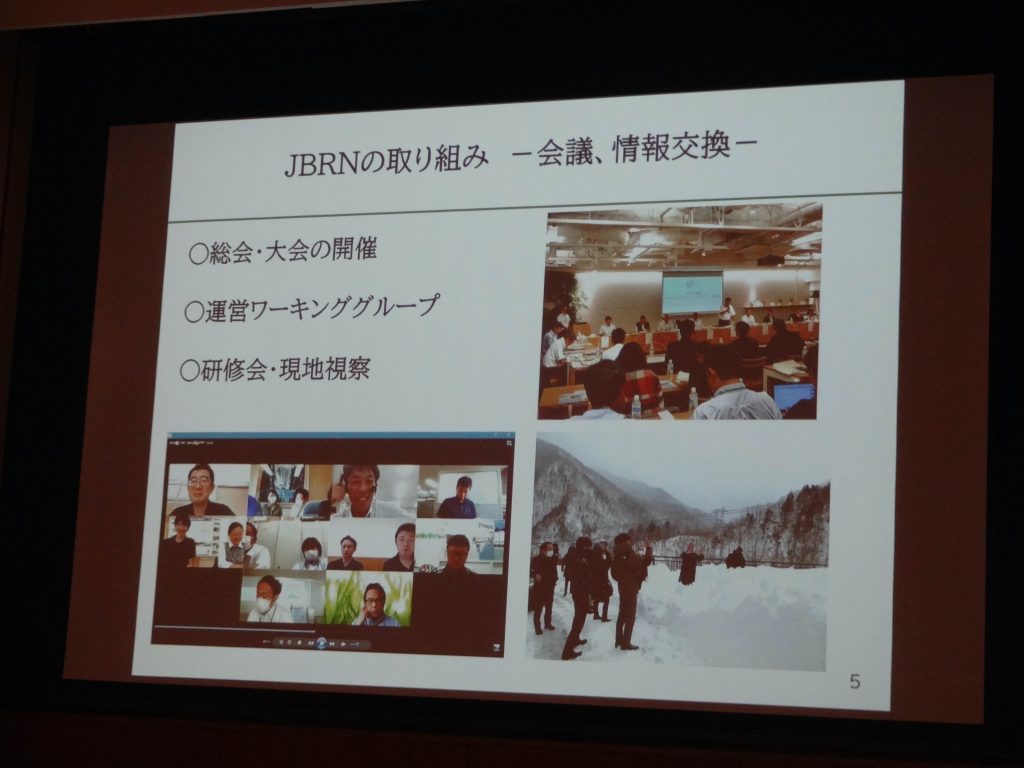
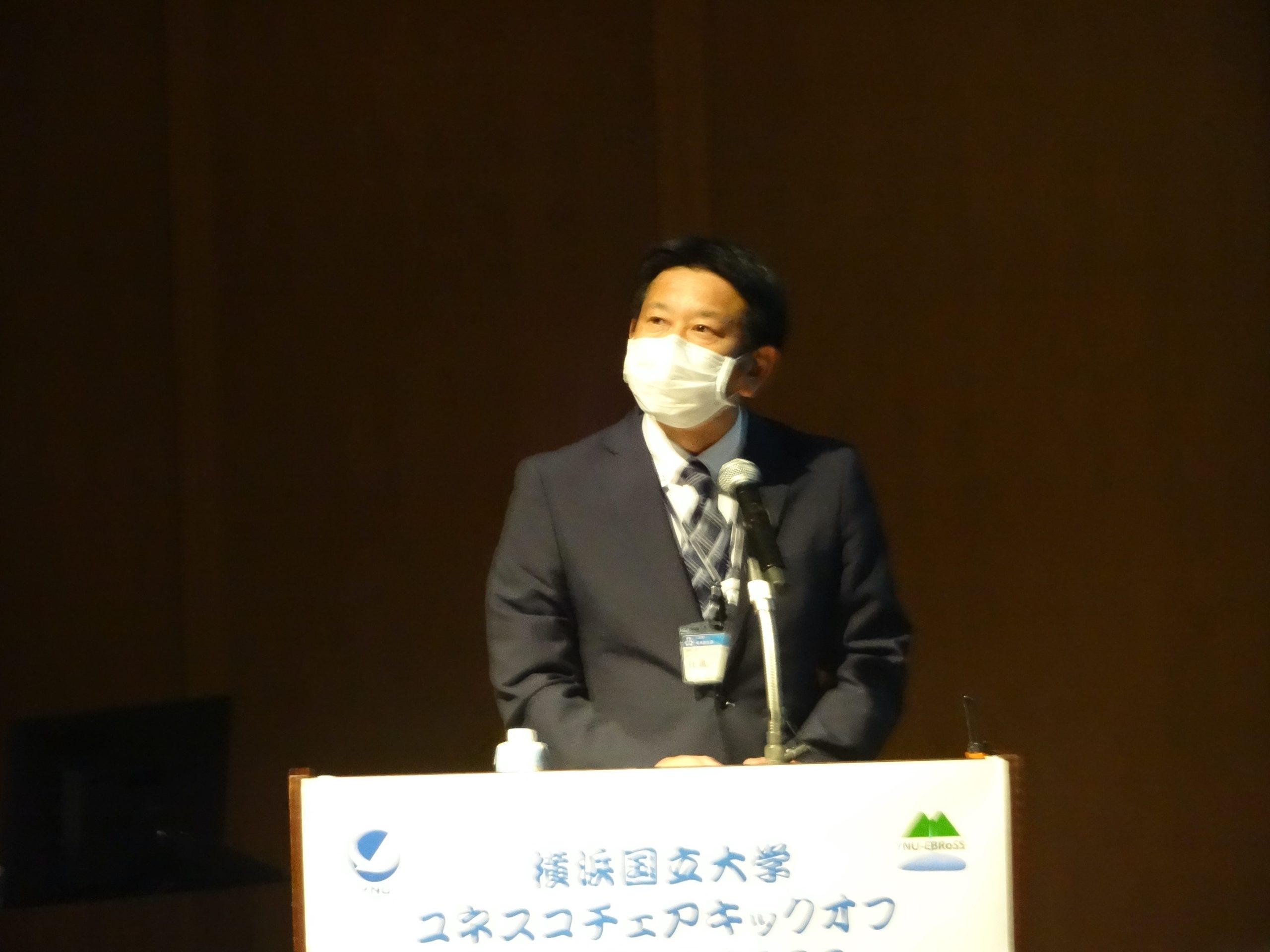
At the end of the morning session, Mr. Yasuhiro Meguro (Director of Regional Revitalization Division, Tadami Town Office, Secretary General of Japan UNESCO Eco Park Network JBRN) gave a lecture titled “What the Japan UNESCO Eco Park Network JBRN Expects from Universities”, and the activities of Tadami BR and JBRN’s achievements were explained together with expectations for the future of various initiatives in collaboration with universities and youth.
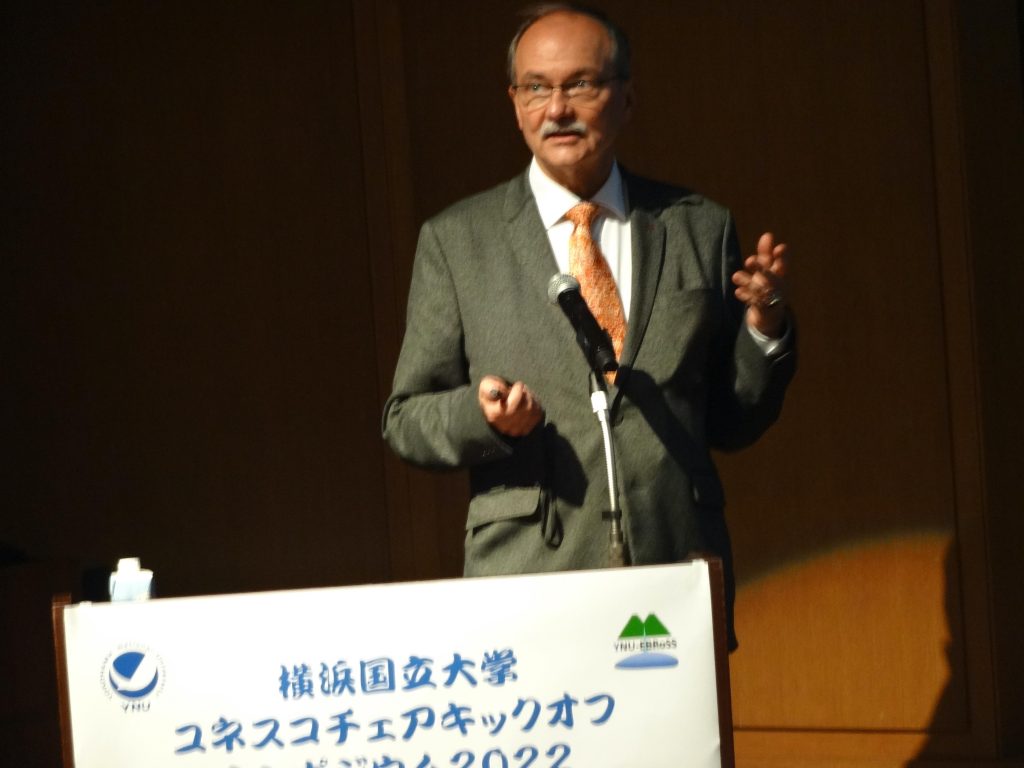
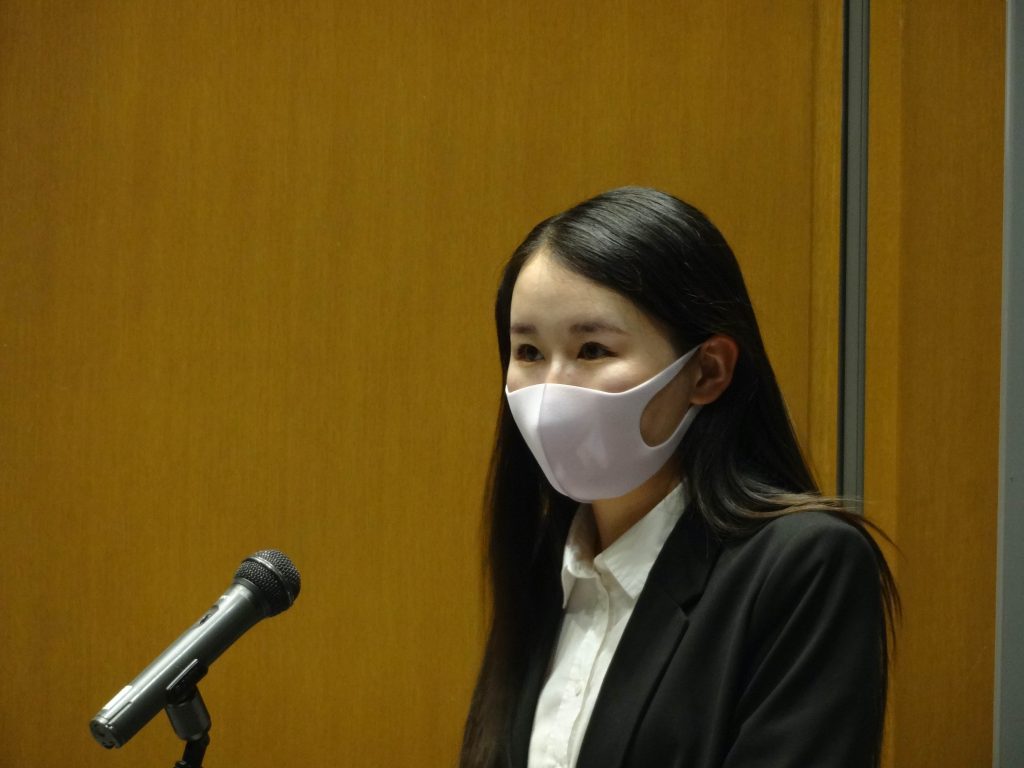
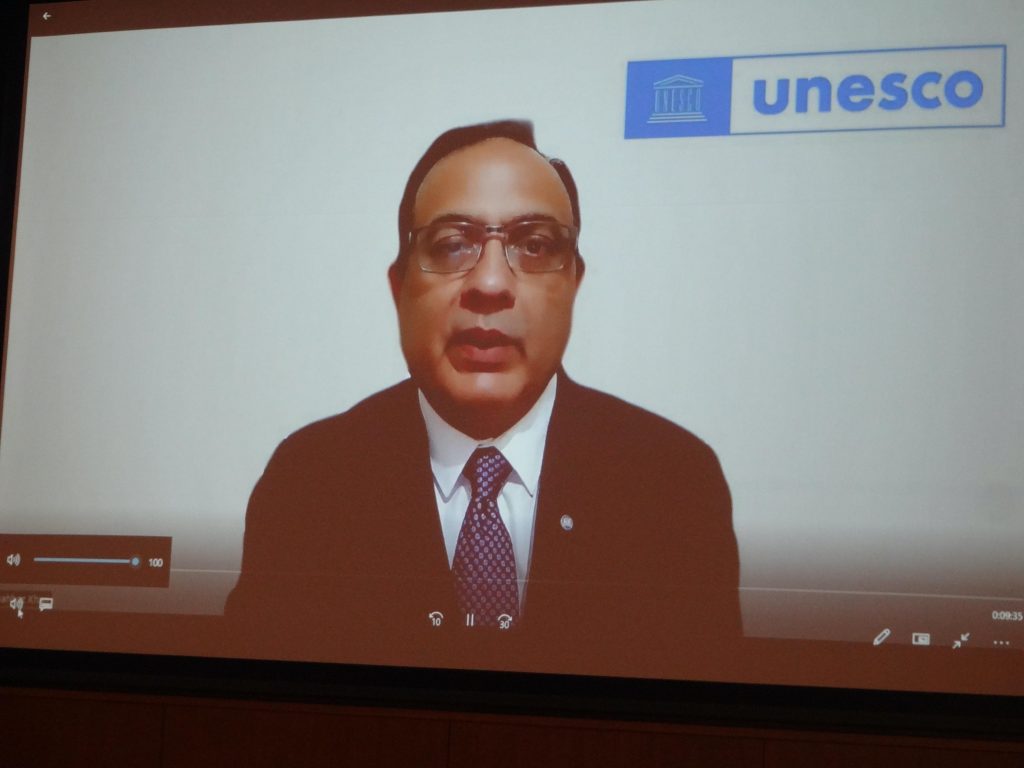
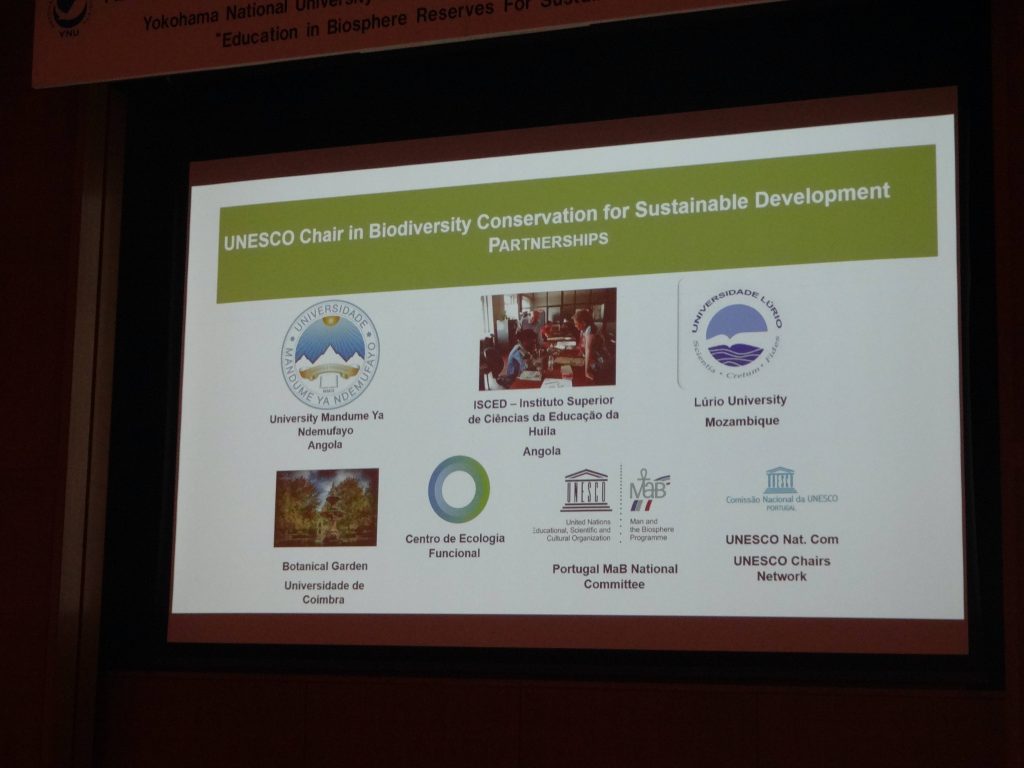
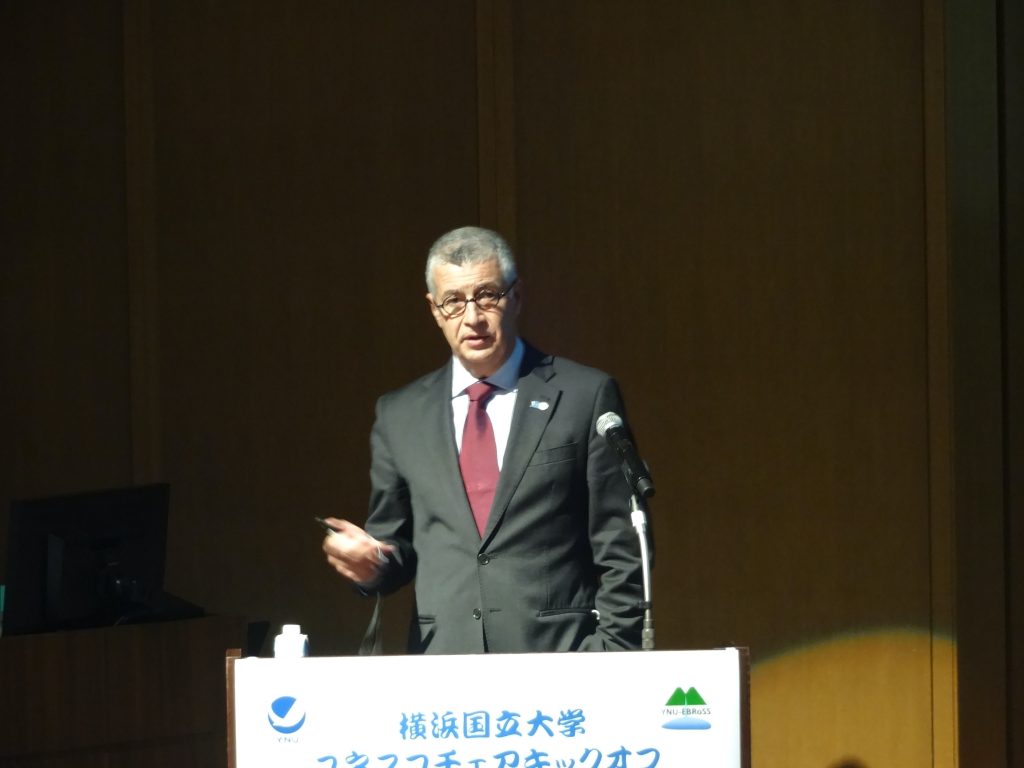
Dr. Antonio Domingos Abreu (University of Coimbra, Biologist, Environmental Specialist/Environmental Expert) gave a lecture titled “Biosphere Reserves in Portugal: Sustainable Areas and Resilient Communities”, in which activities of UNESCO Chair on Biodiversity Safeguard for Sustainable Development at University of Coimbra in Portugal were introduced.
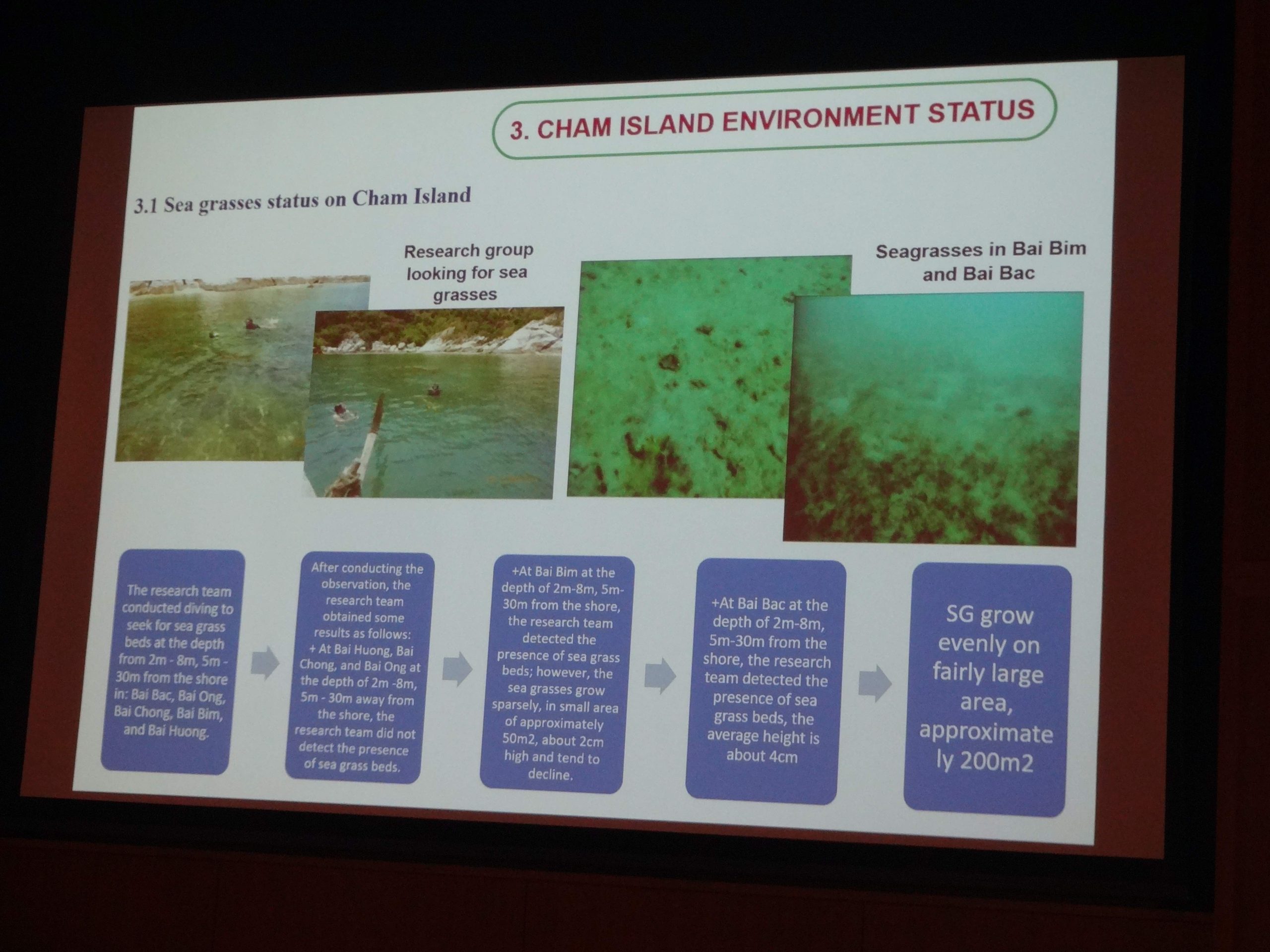
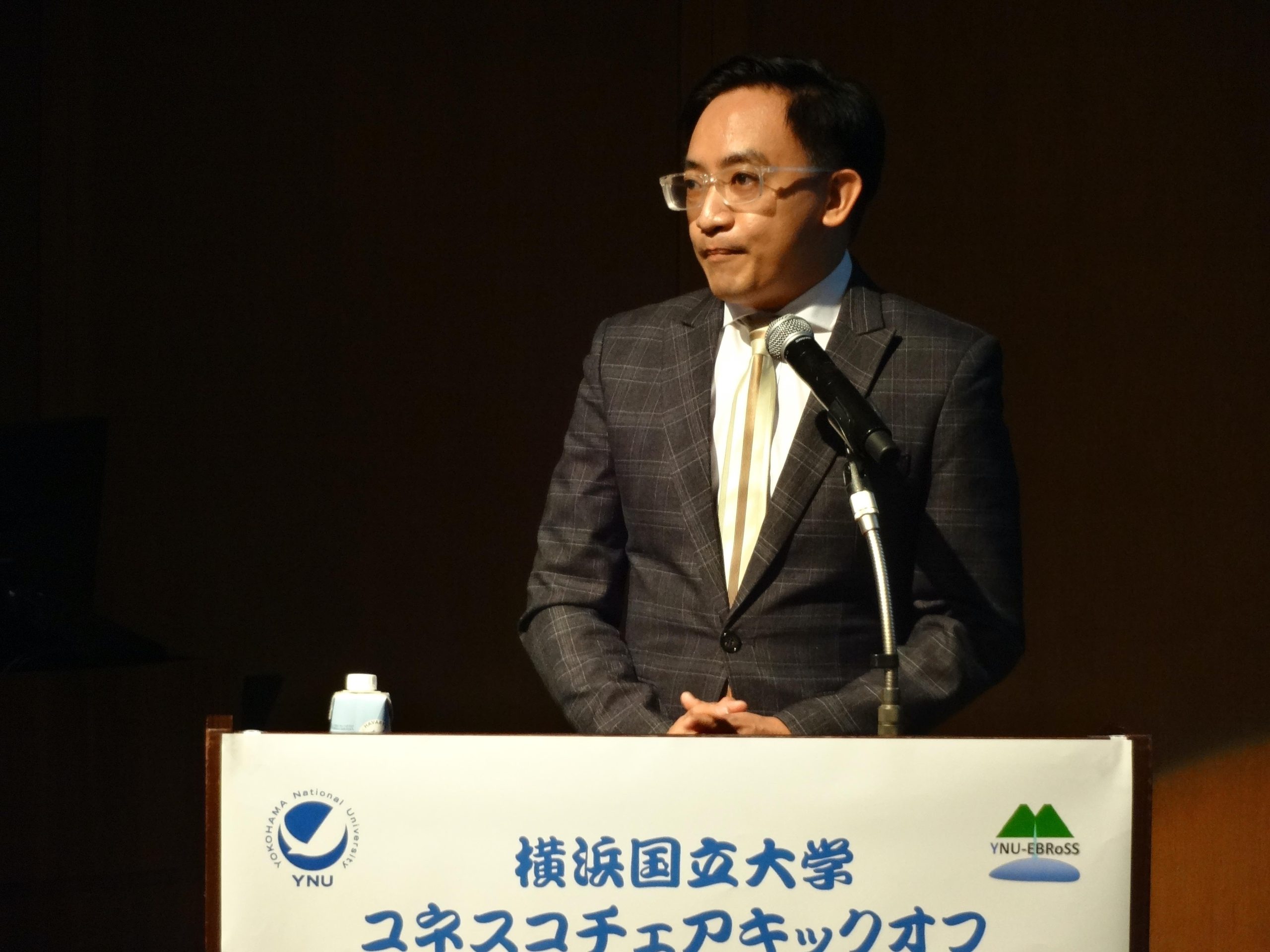
Assoc Prof. Le Phuoc Cuong (University of Da Nang) gave a lecture titled “Cham BR (Hoi An, Vietnam) Current Situation and Challenges to Climate Change”, introducing the situation of Cham Island near Da Nang City, including the destruction of nature. As Da Nang University is a partner university of our university, future student exchanges are expected.
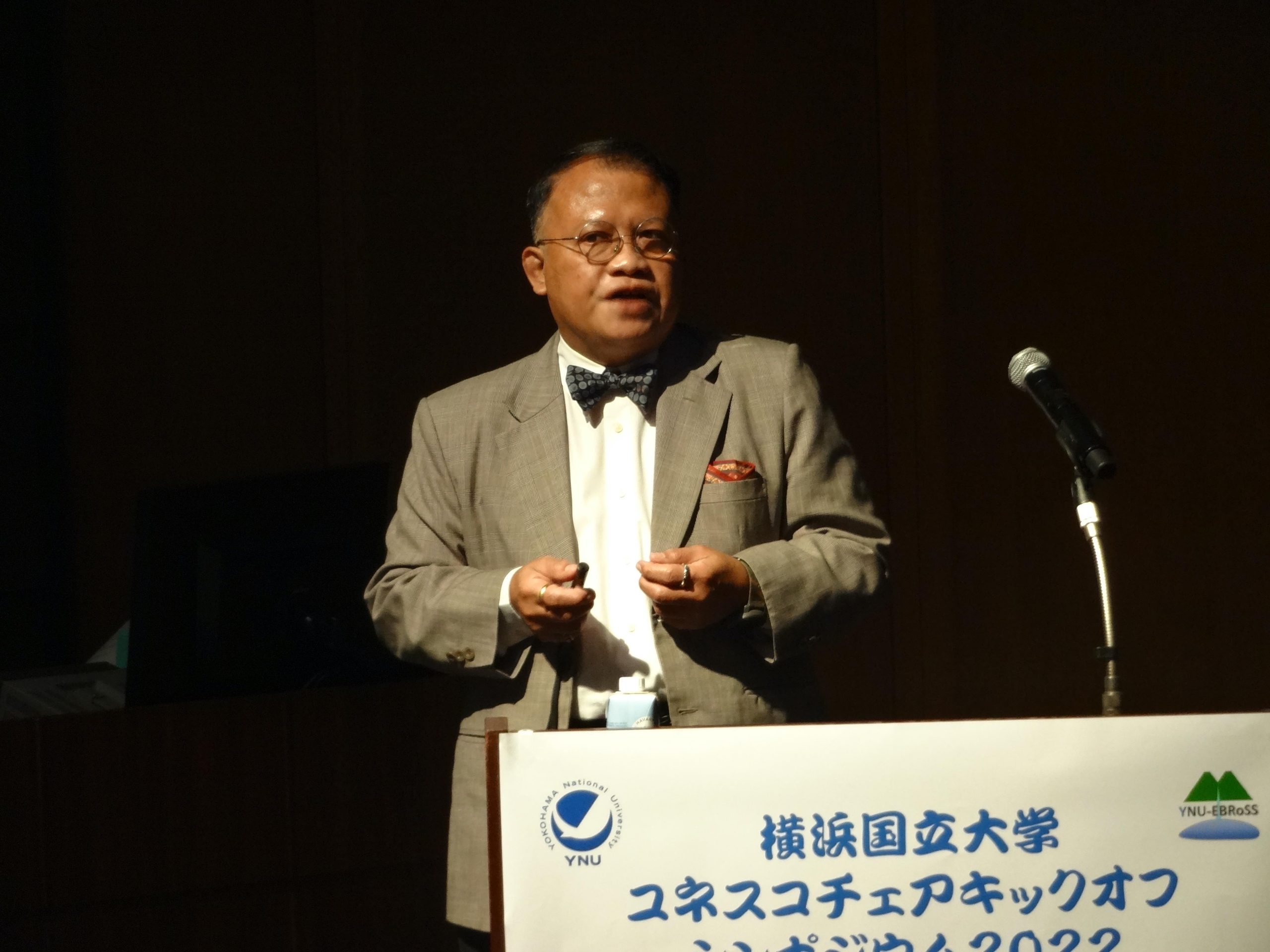
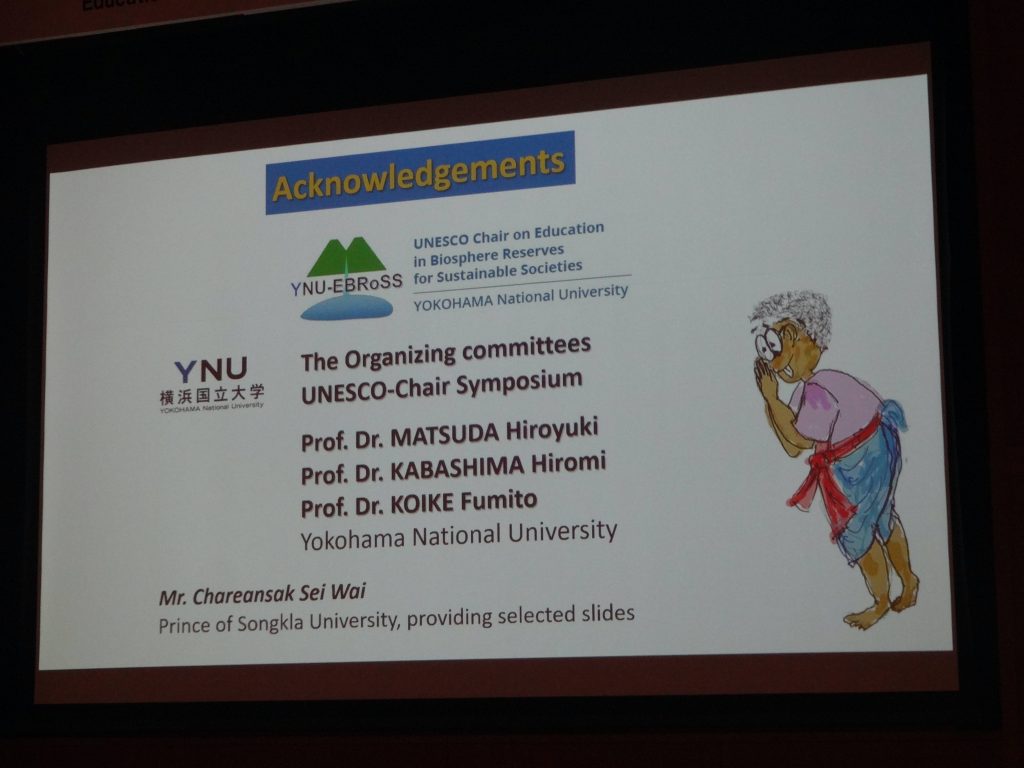
Prof. Kirichate Sridith (Prince of Songkla University) gave a lecture titled “Thai Government Policy and Deterioration of Natural Vegetation”, and introduced the current state of nature being lost due to dam construction. Prince of Songkla University is also a partner university of our university, so future student exchanges are expected.
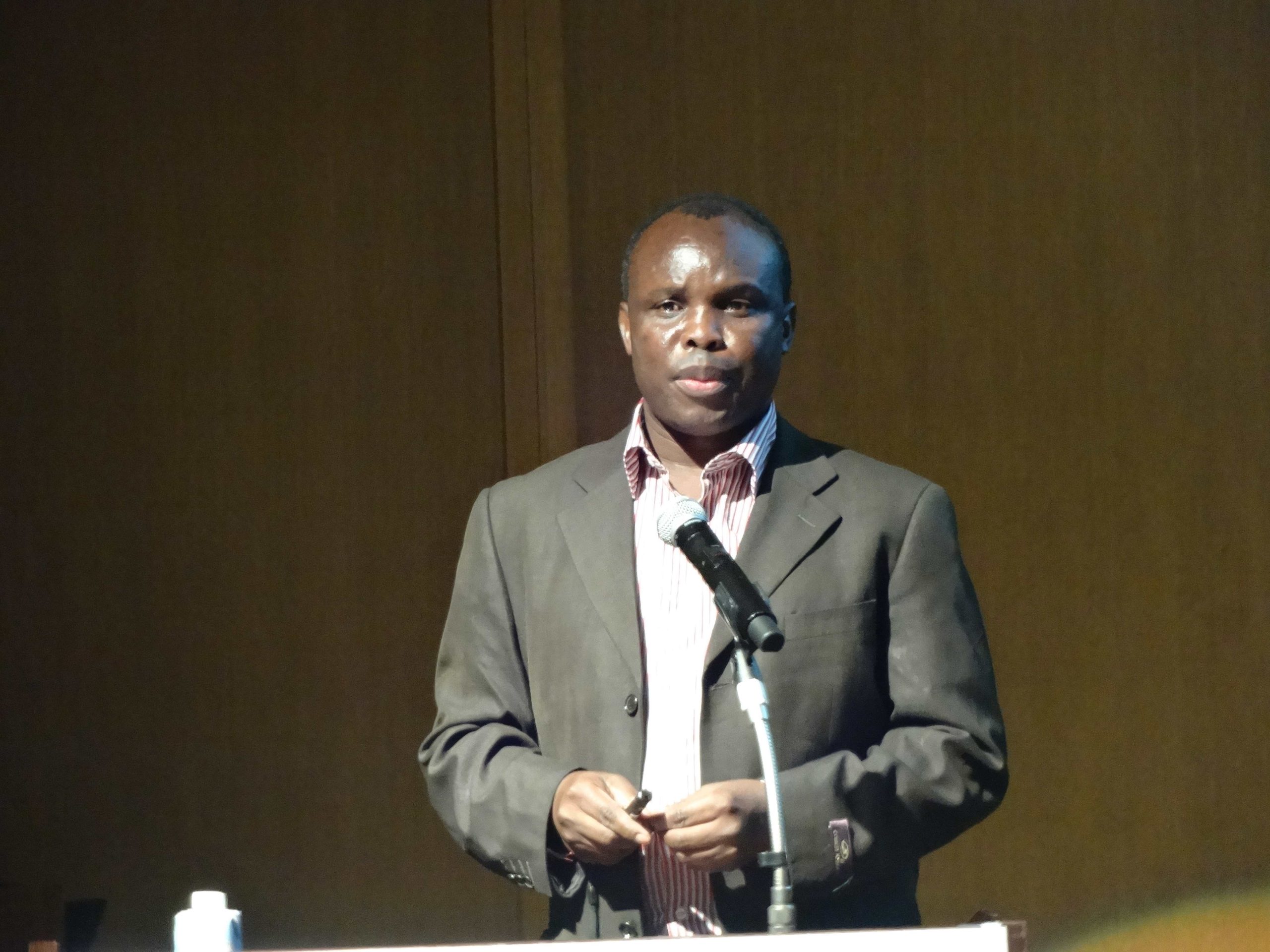
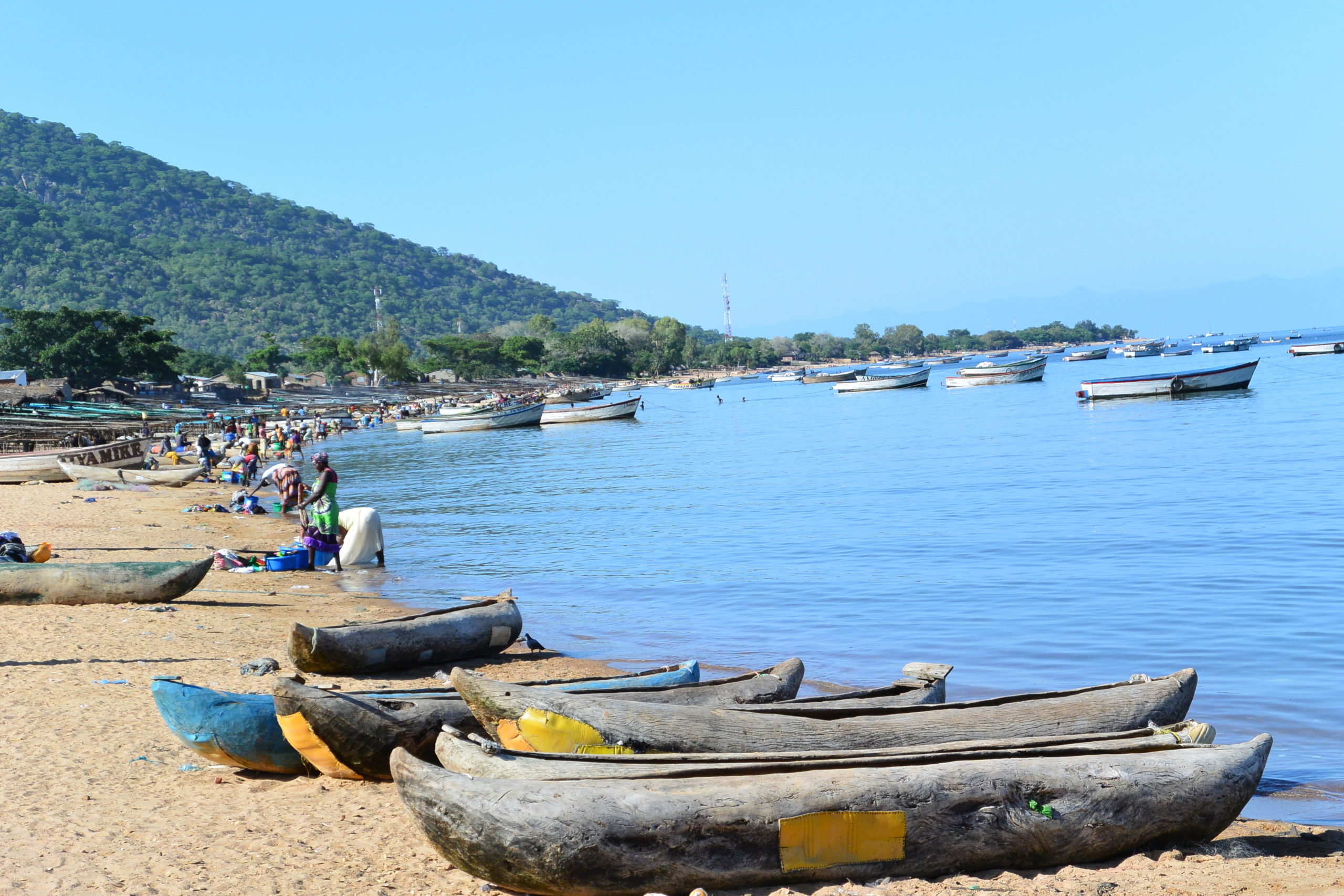
Mr. McPhillip Mwithokona (Malawi National Park, Wildlife Department) gave a lecture titled “Overview of the SATREPS Project in Lake Malawi National Park, a World Heritage Site.” Research contents of the JST SATREPS program in Africa, in which Professor Hiroyuki Matsuda is participating, were introduced.

These lectures were followed by a panel discussion by the panelists (from left to right: Prof. Matsuda, Mr. Mwithokona, Prof. Sridith, Assoc Prof. Cuong, Dr. Abreu, and Prof. Clüsener-Godt). After the panelists first gave their impressions of the conference, questions were taken from the floor. Several questions were asked from the audience, and the panelists shared their opinions.
